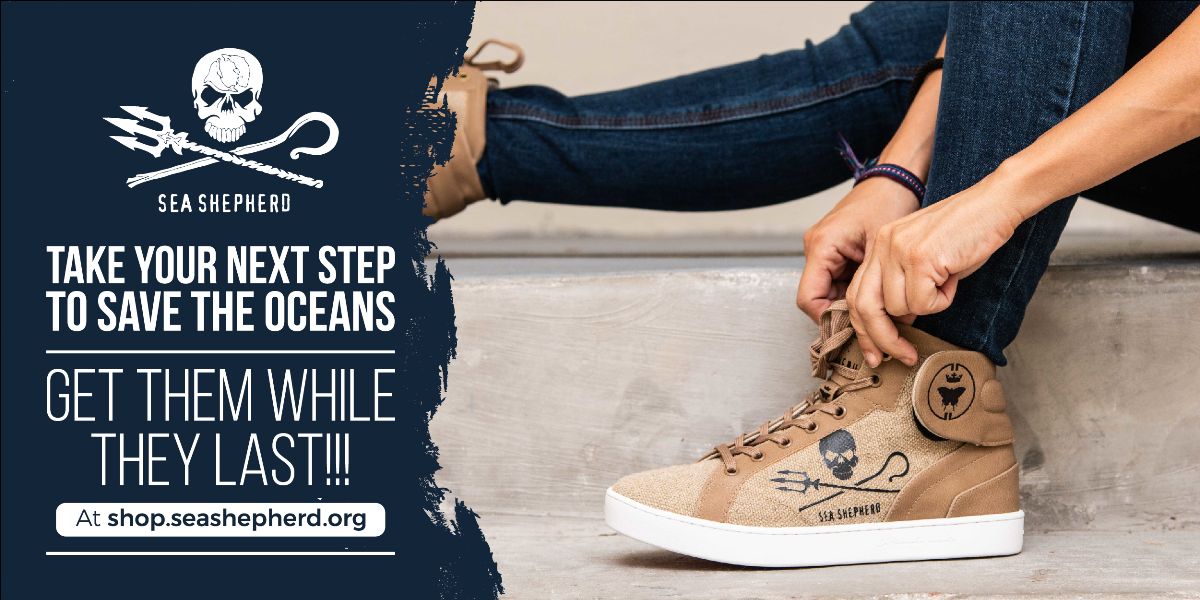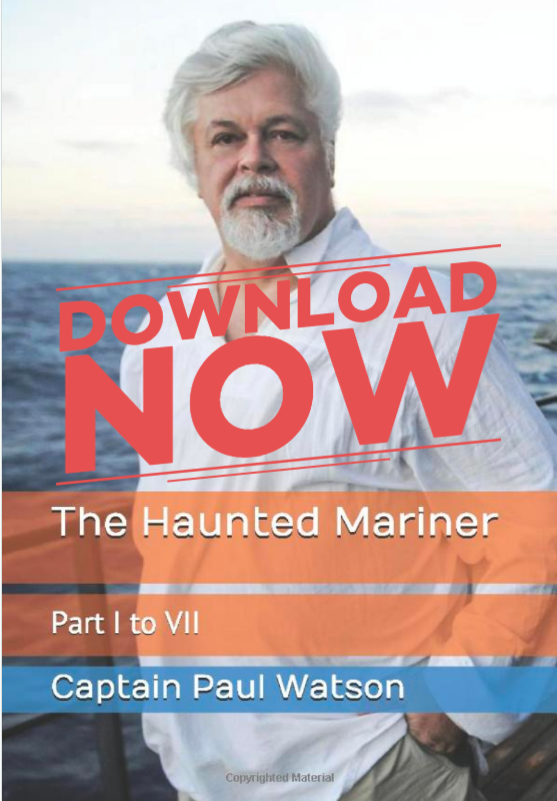Sea Shepherd Conservation Society
CAPTAIN’S
LOG
2018
NO.76
For more information about Sea Shepherd and our campaigns to defend, conserve & protect the oceanic wildlife please visit: seashepherd.org
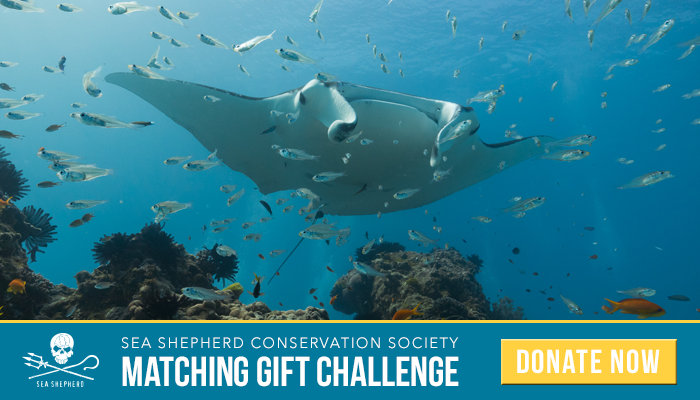
At Sea Shepherd Conservation Society, every day is World Ocean’s Day. For over forty-two years, we have fought to protect every living being in our oceans from the smallest fish to the largest mammal. While we have made great strides defending our oceans, there is still so much more work to be done.
In honor of World Ocean’s Day, Sea Shepherd is hosting a Matching Gift Challenge and thanks to the generosity of a few of our amazing supporters, your donation will be matched up to $150,000! Each donation will be used to help with fueling our ships, feeding our crew, and defending marine wildlife. With your help, we can continue to fight for the oceans.
We are extremely grateful to the following individuals and families who have generously donated toward our $150,000 Challenge Match:

How We Can All Give Back
You can participate in a World Oceans Day event or activity this year to help protect our oceans. It’s up to each of us to help ensure that the ocean is healthy for future generations.
World Oceans Day allows us to:
![]()
We are so grateful for your past support and hope we can count on you to help us with this challenge.
For the oceans,
Captain Paul Watson
Founder and Director
Sea Shepherd Conservation Society
###############
6/2/19

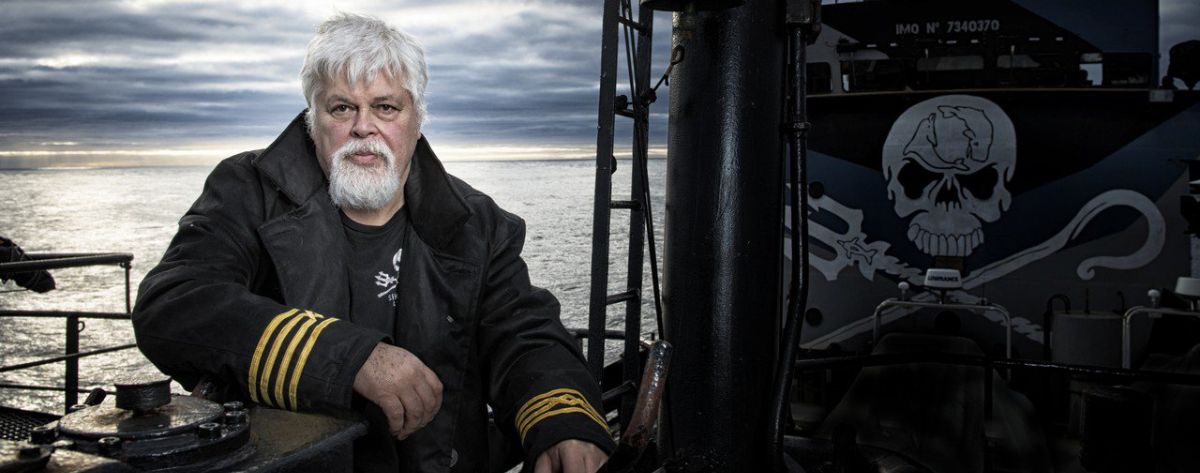
Yours Sincerely,
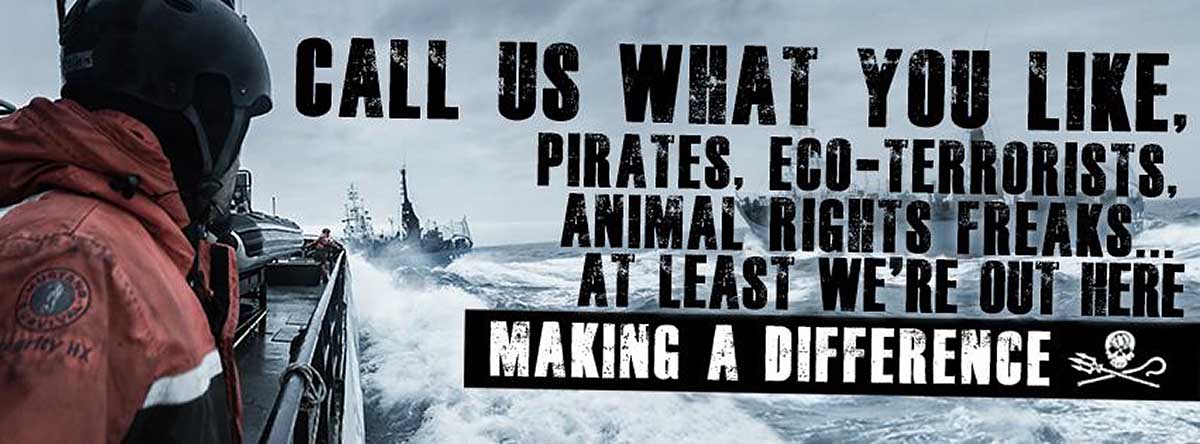

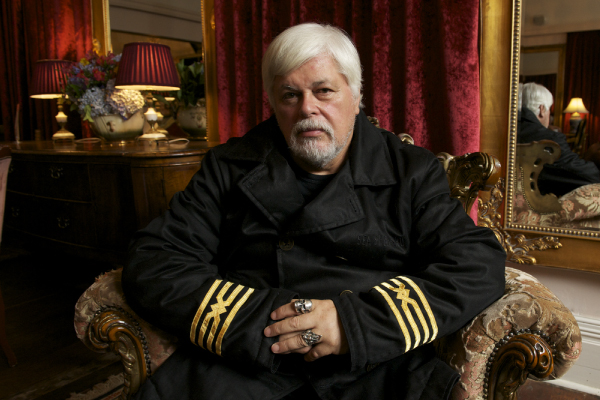
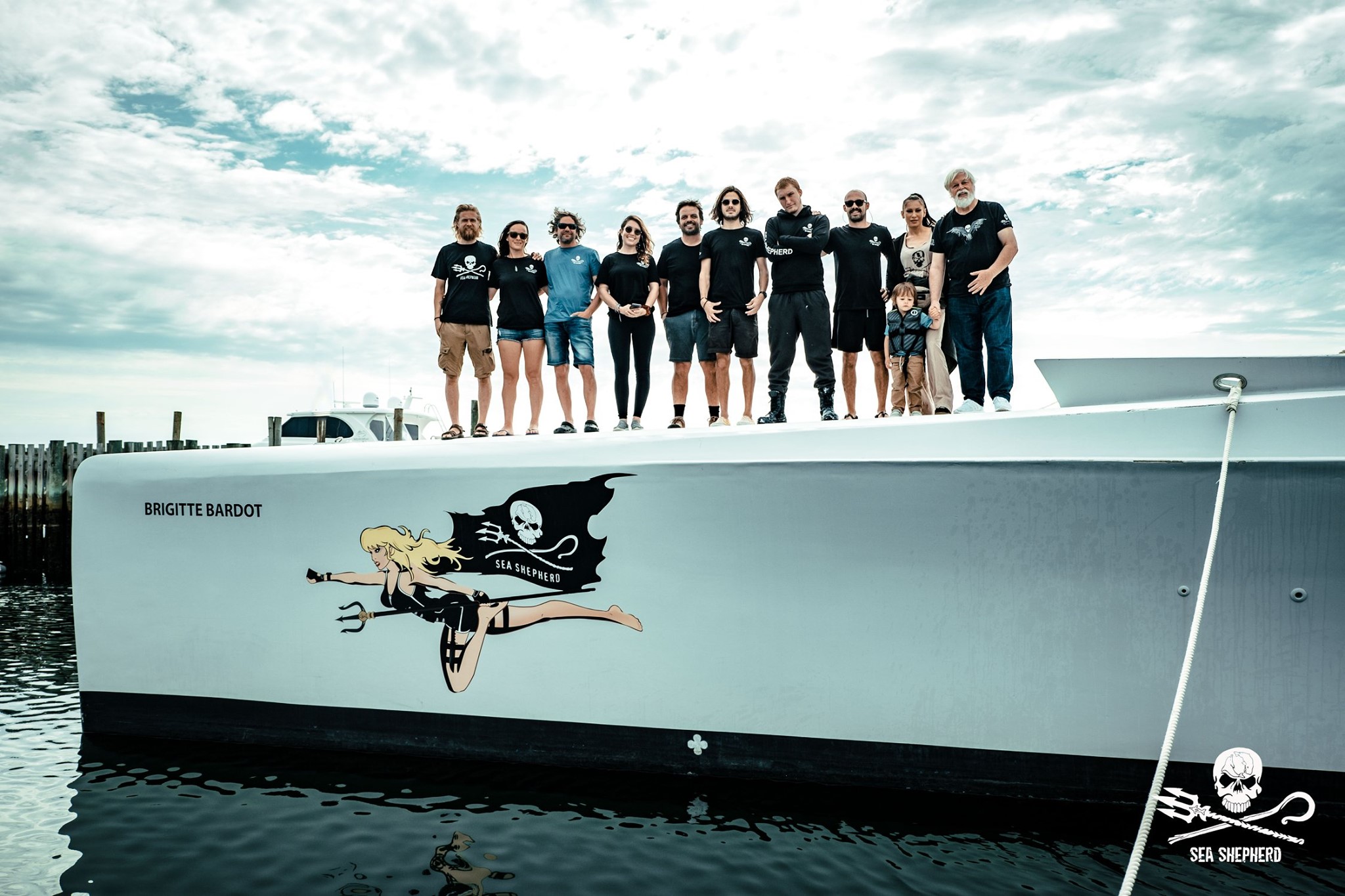

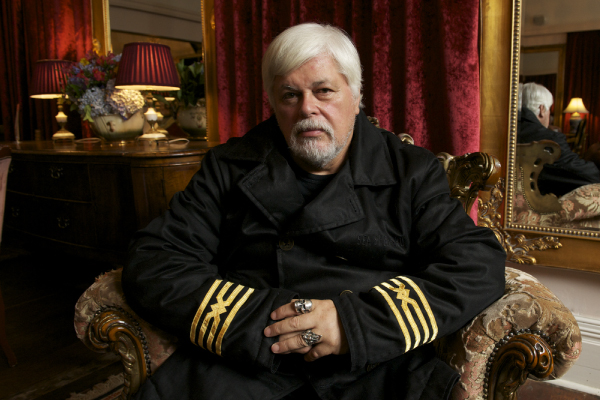
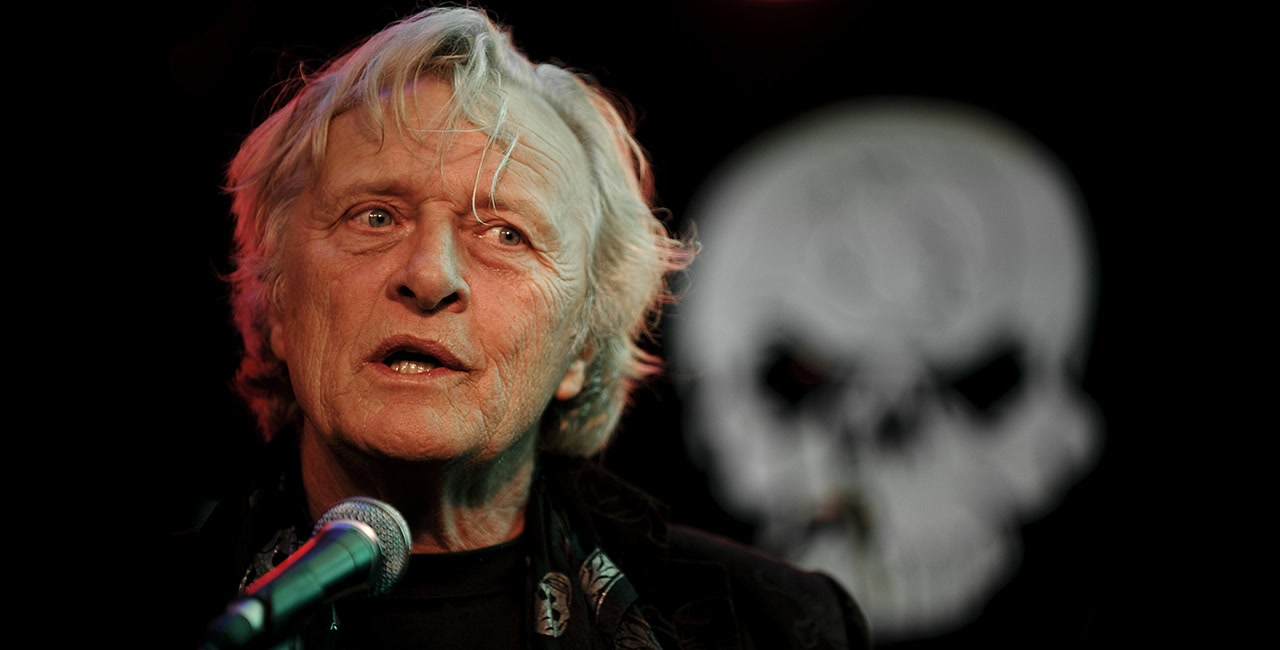
If you are on social, engage with us on Facebook, Twitter, and Instagram by using the hashtag #ForTheOceans
Facebook: www.facebook.com/SeaShepherdConservationSociety
Twitter: twitter.com/SeaShepherdSSCS
Instagram: www.instagram.com/seashepherdsscs/
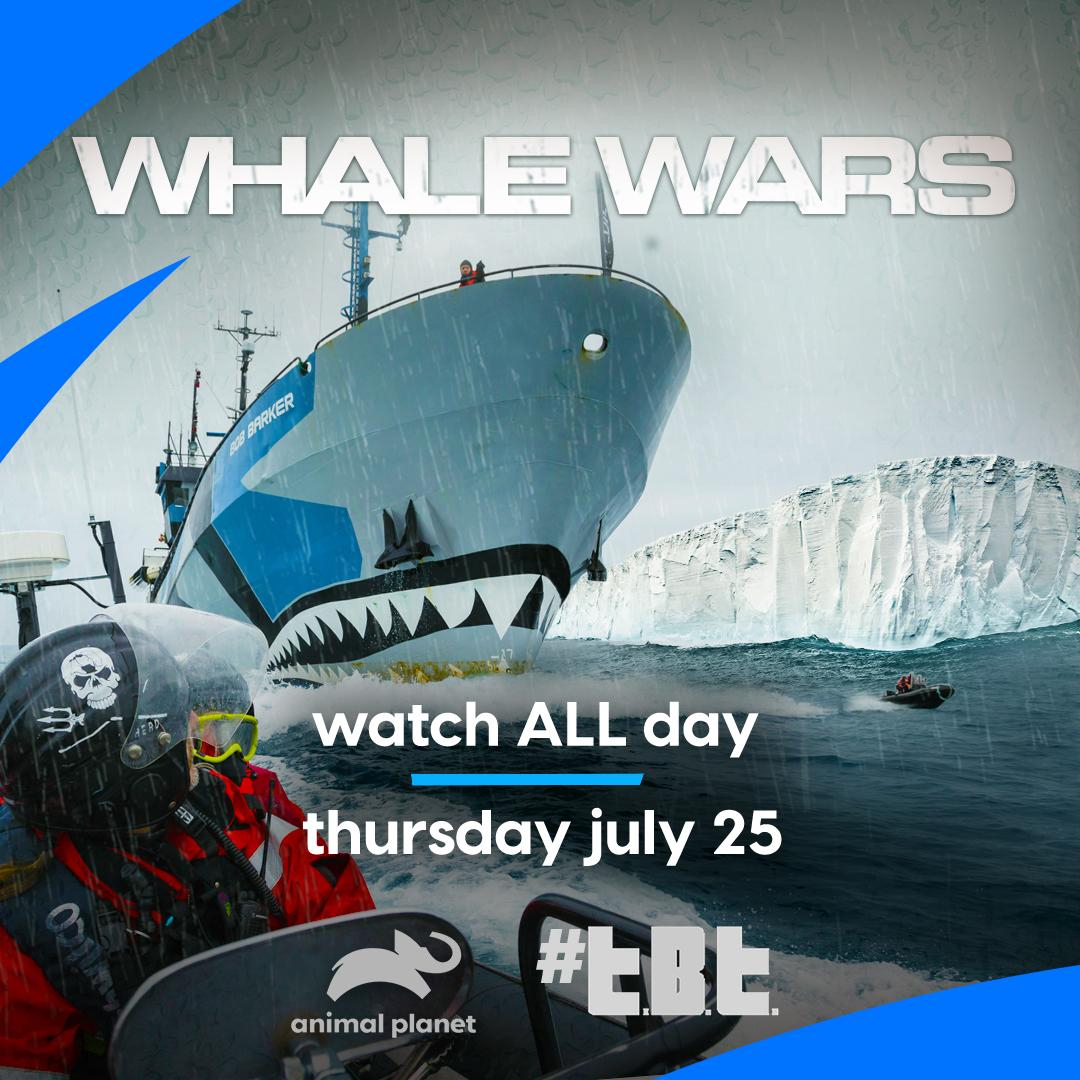
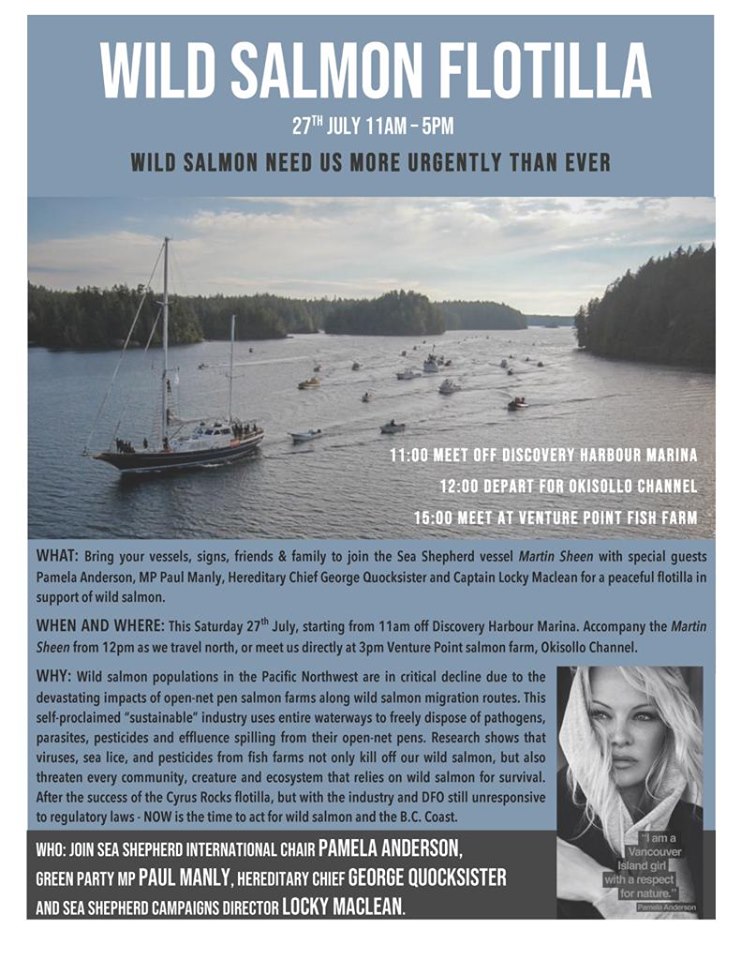
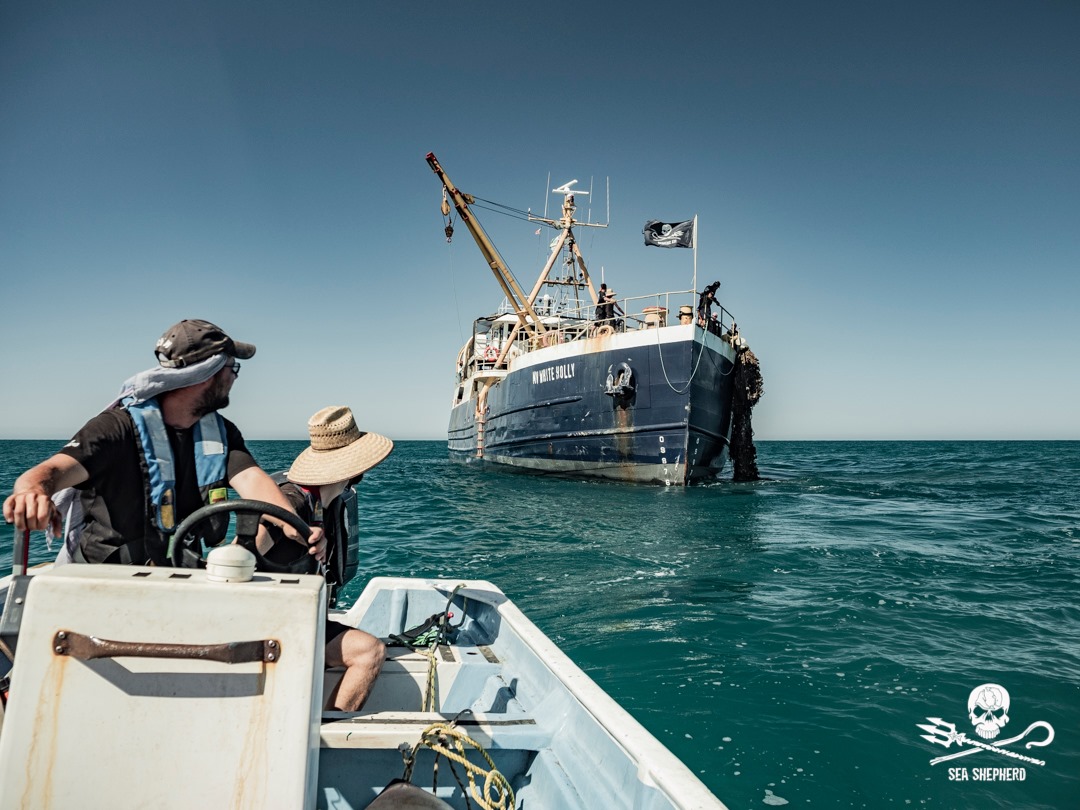
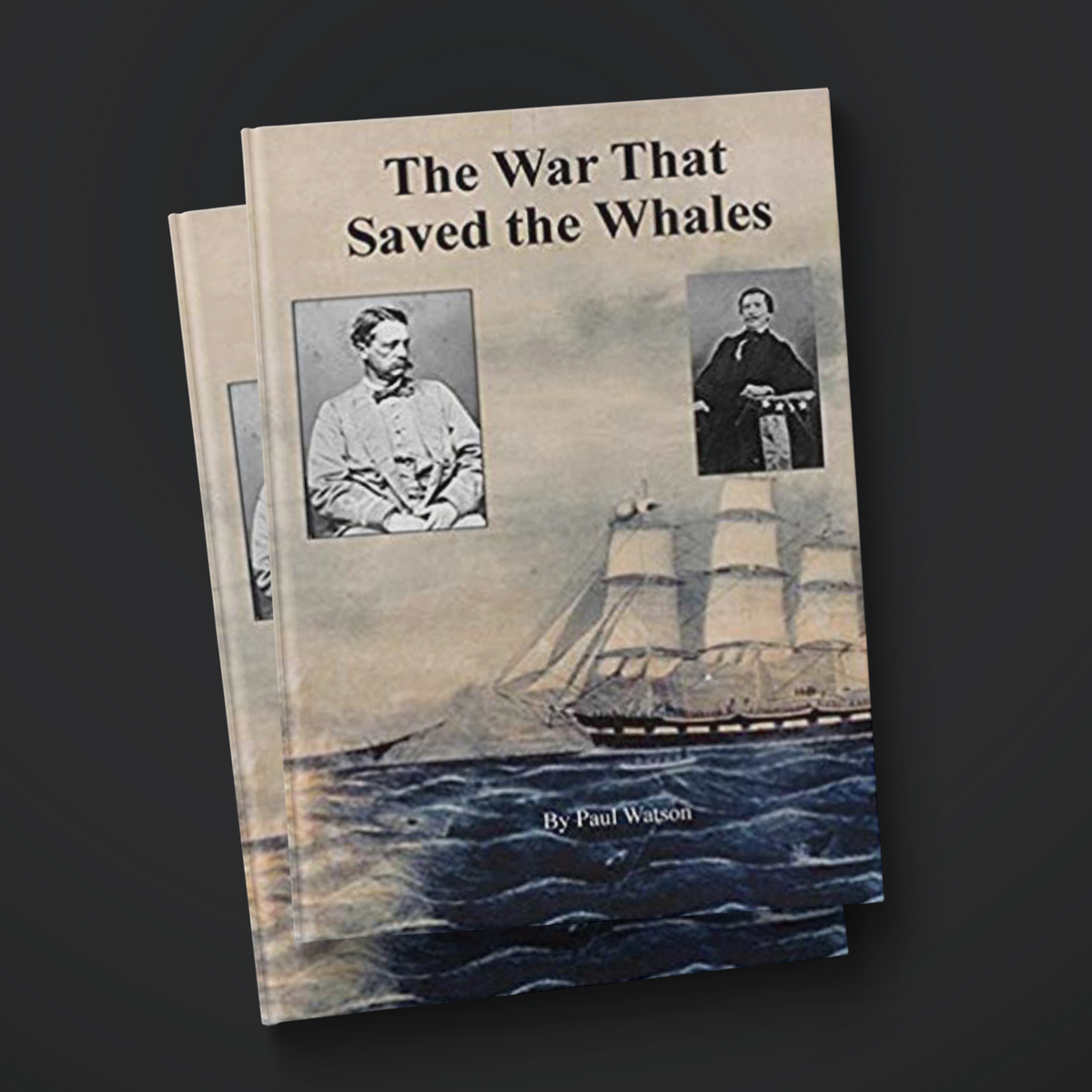
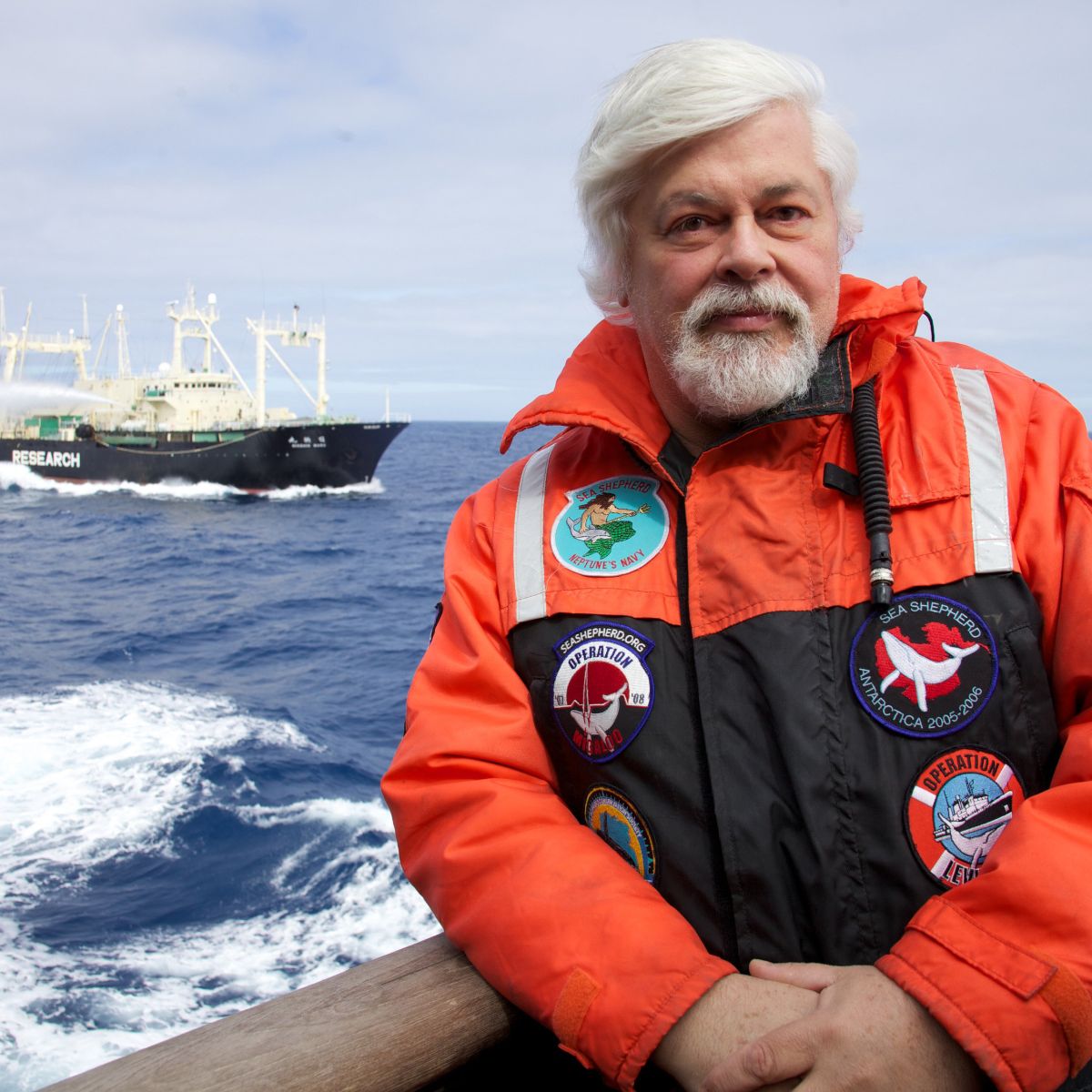

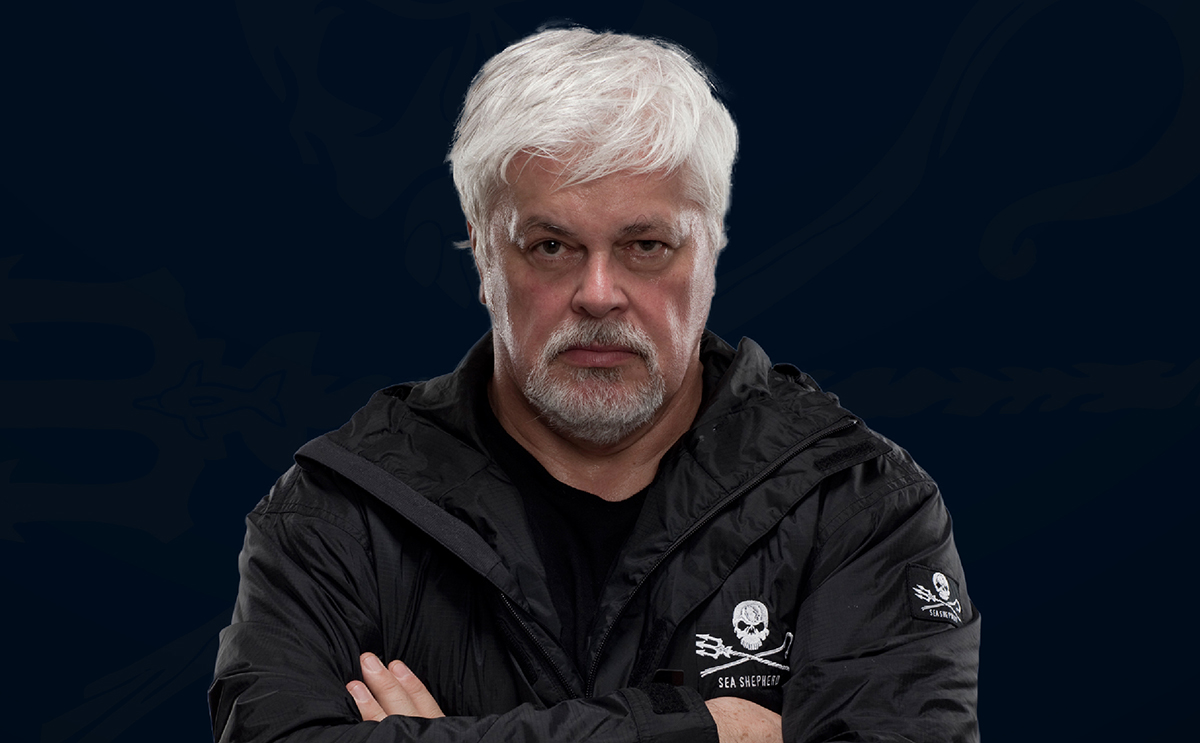
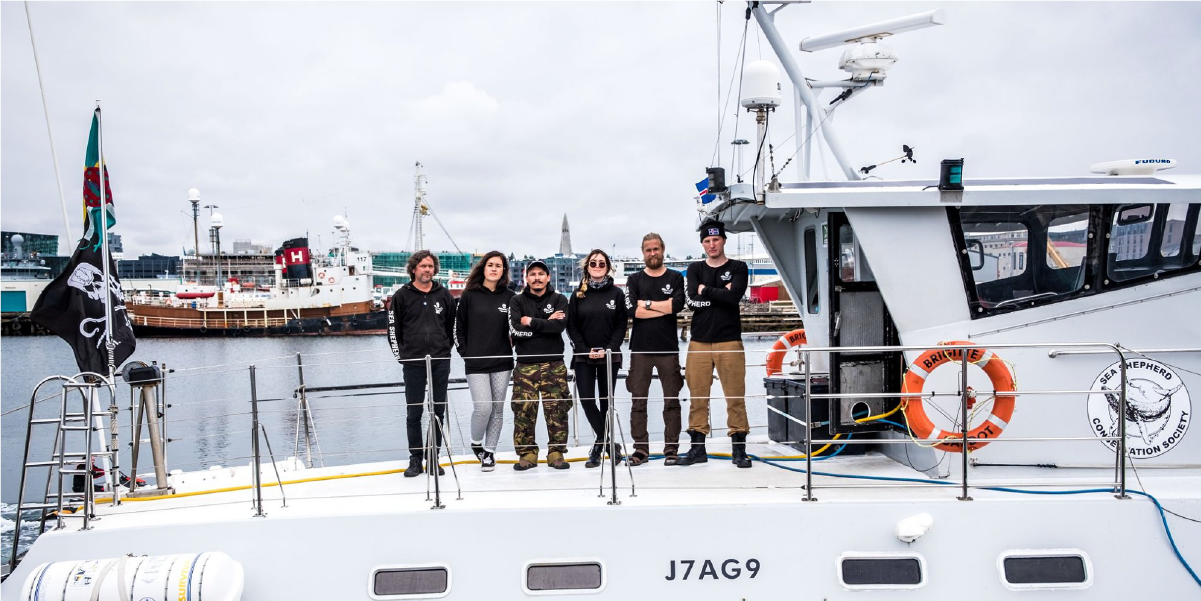
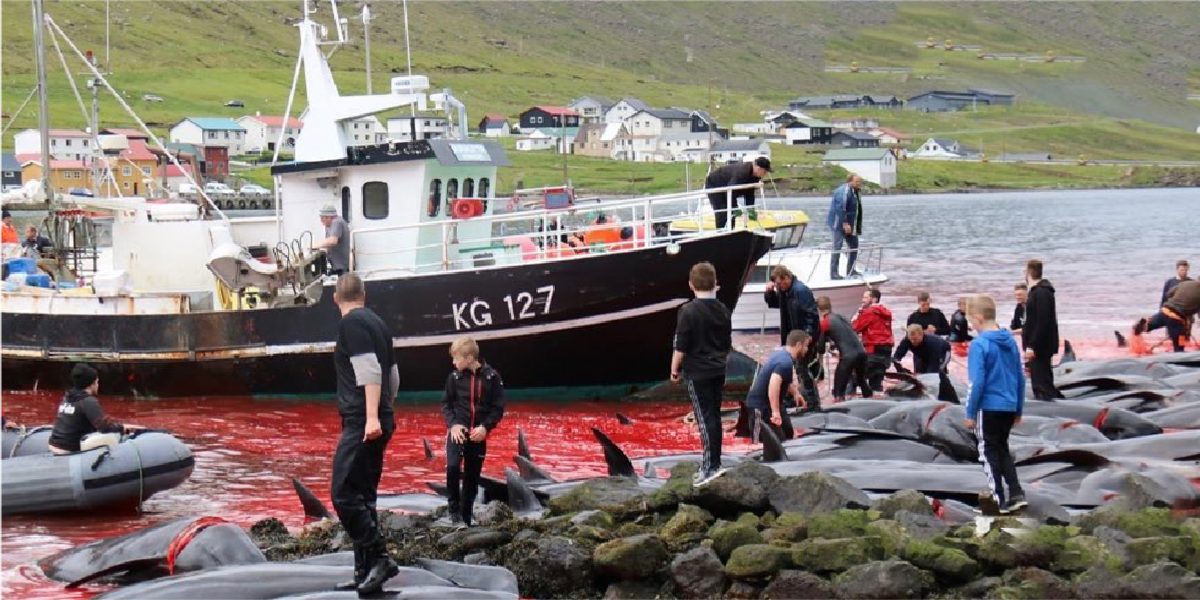
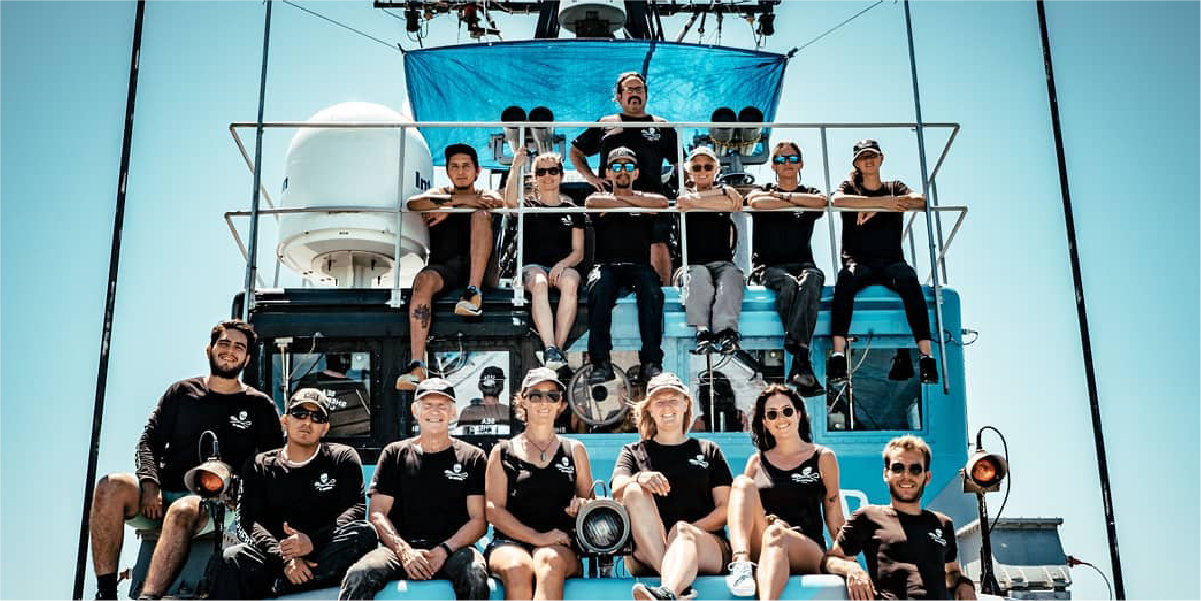
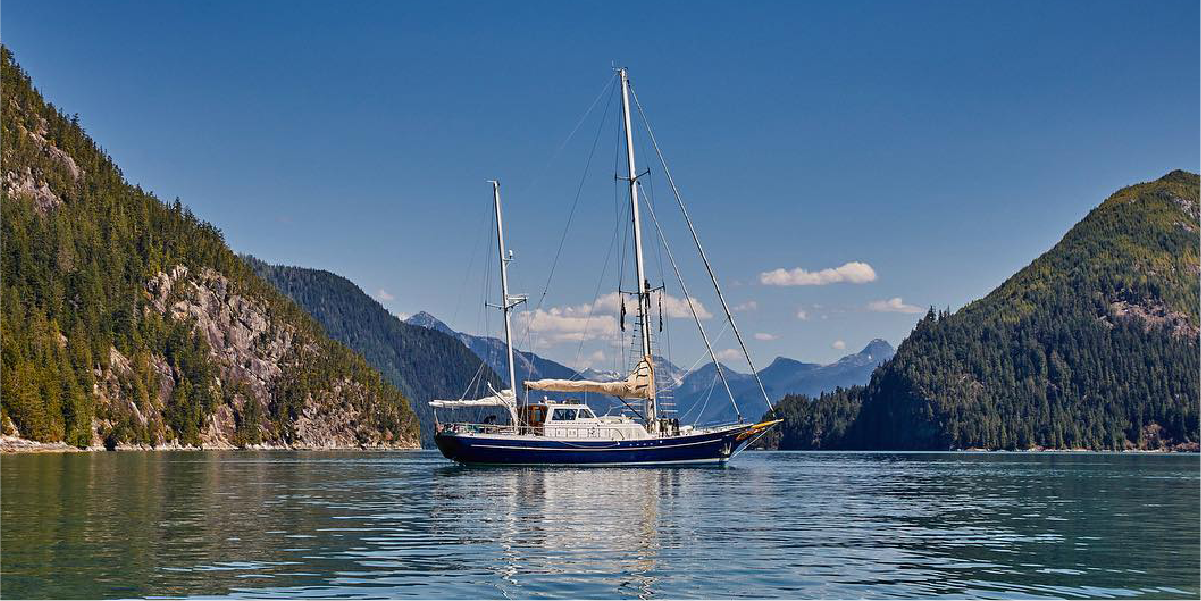
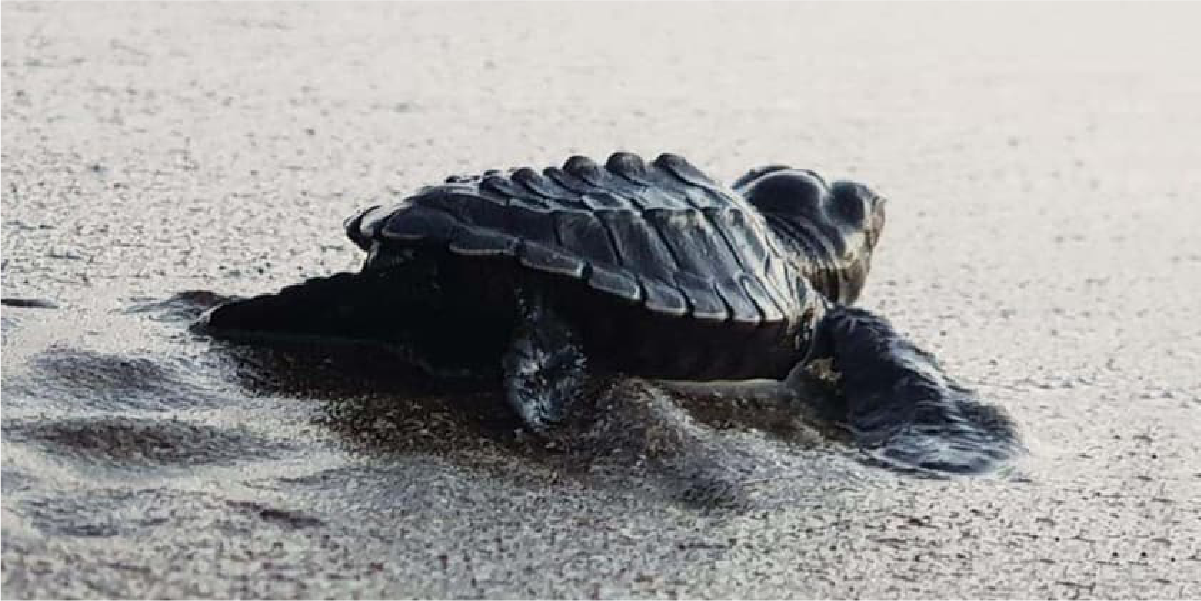
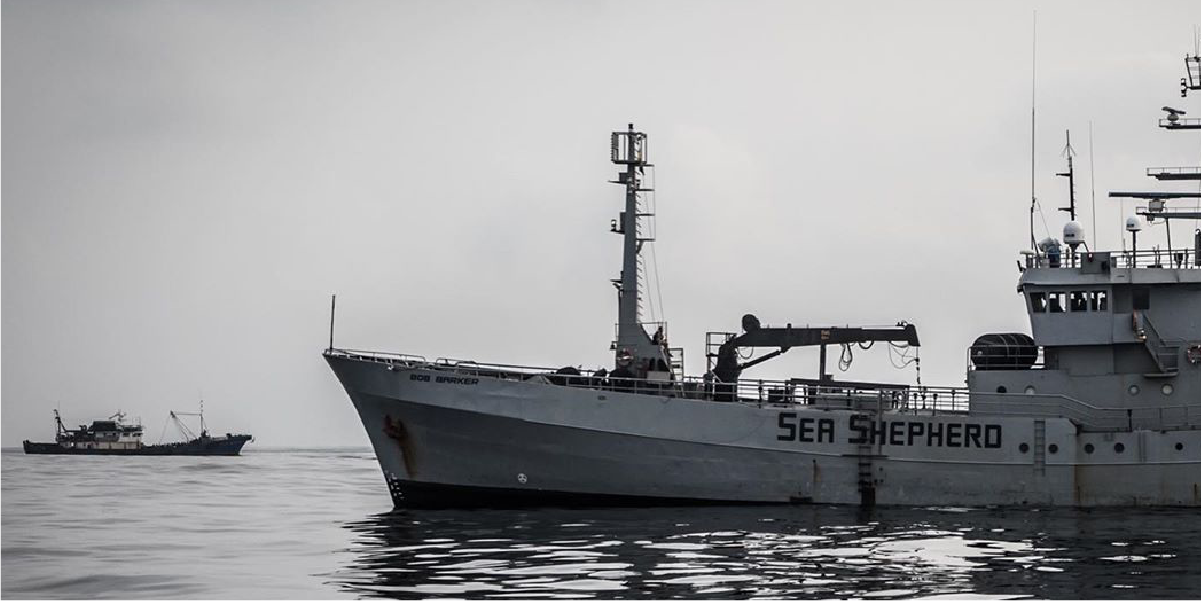
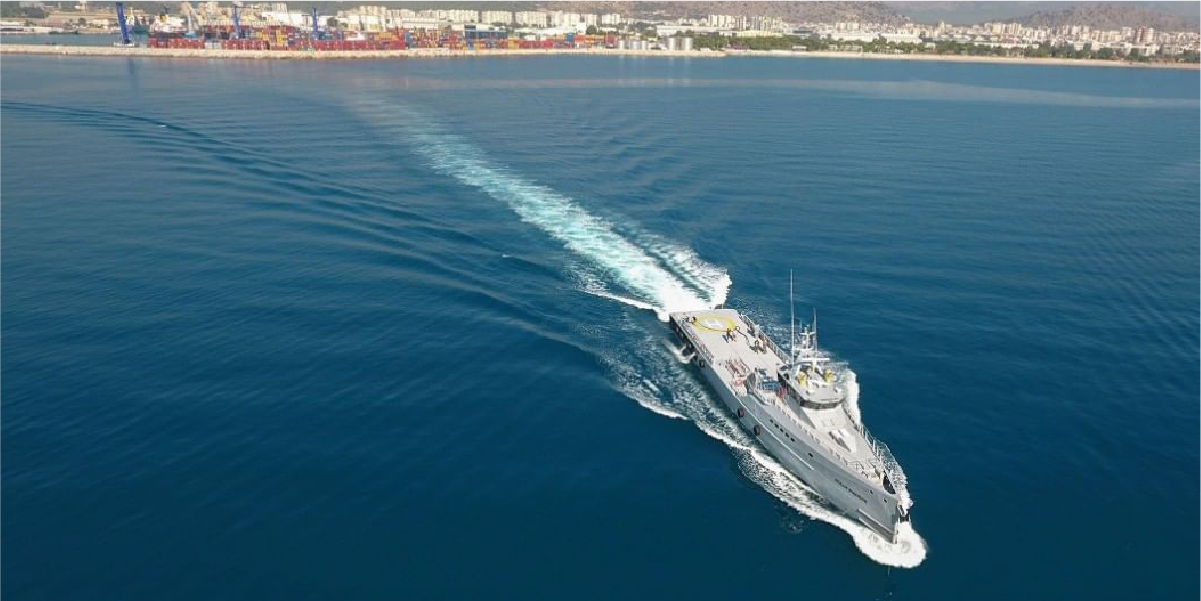
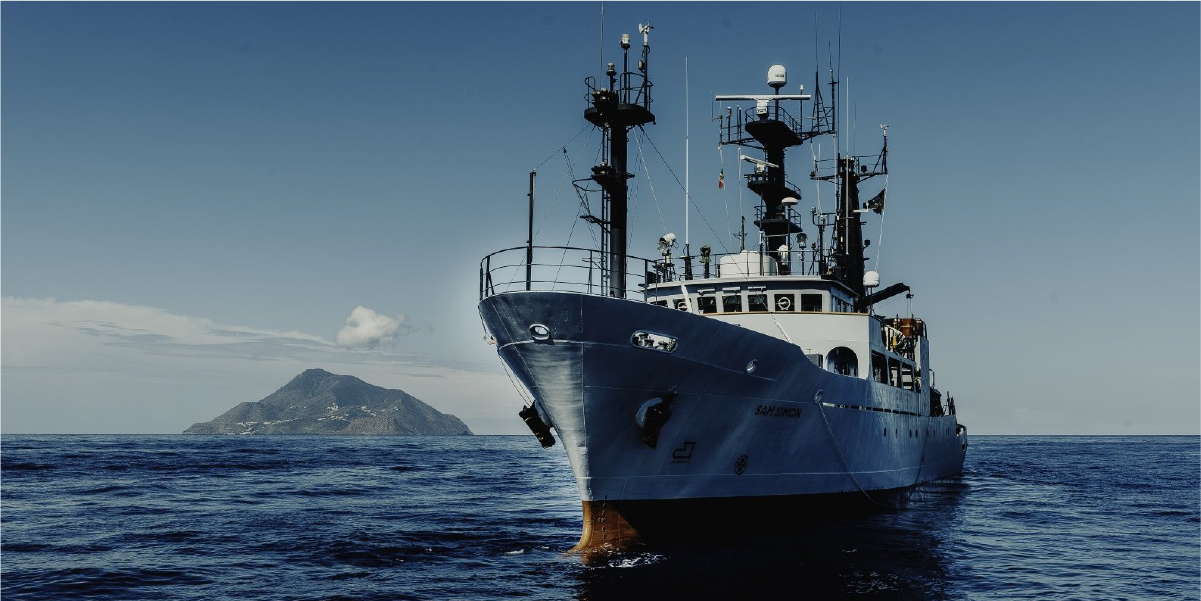
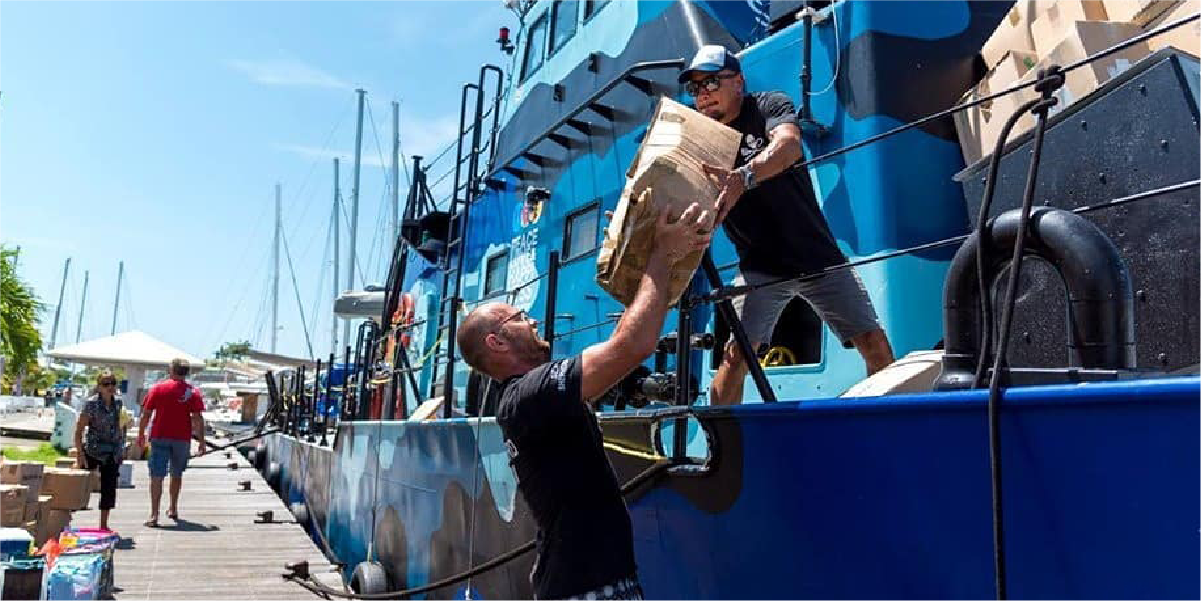
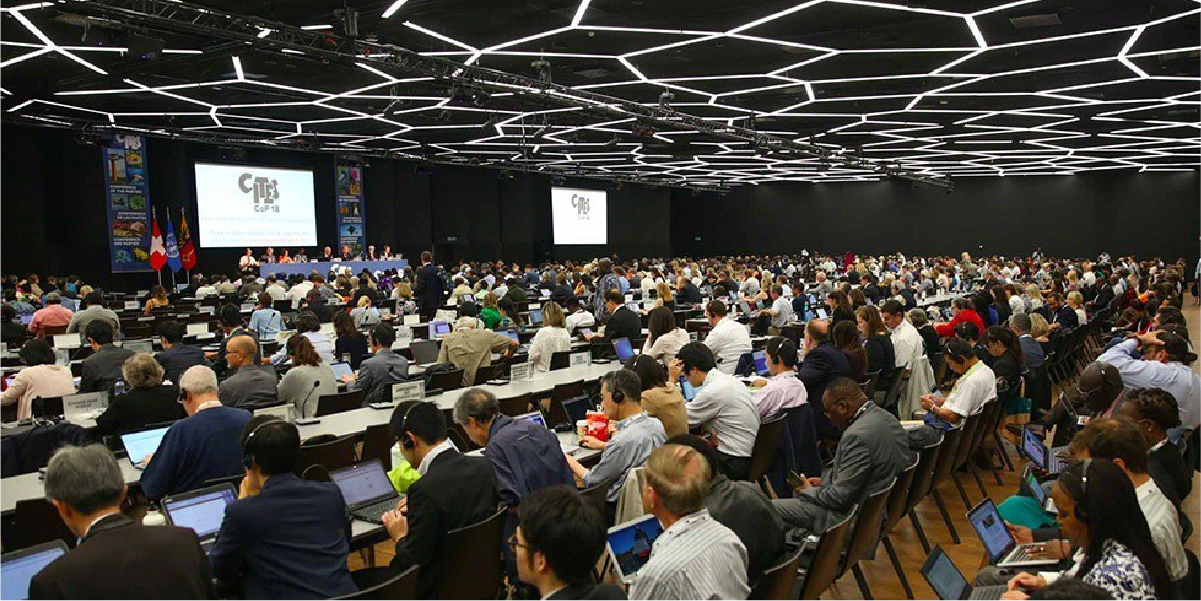
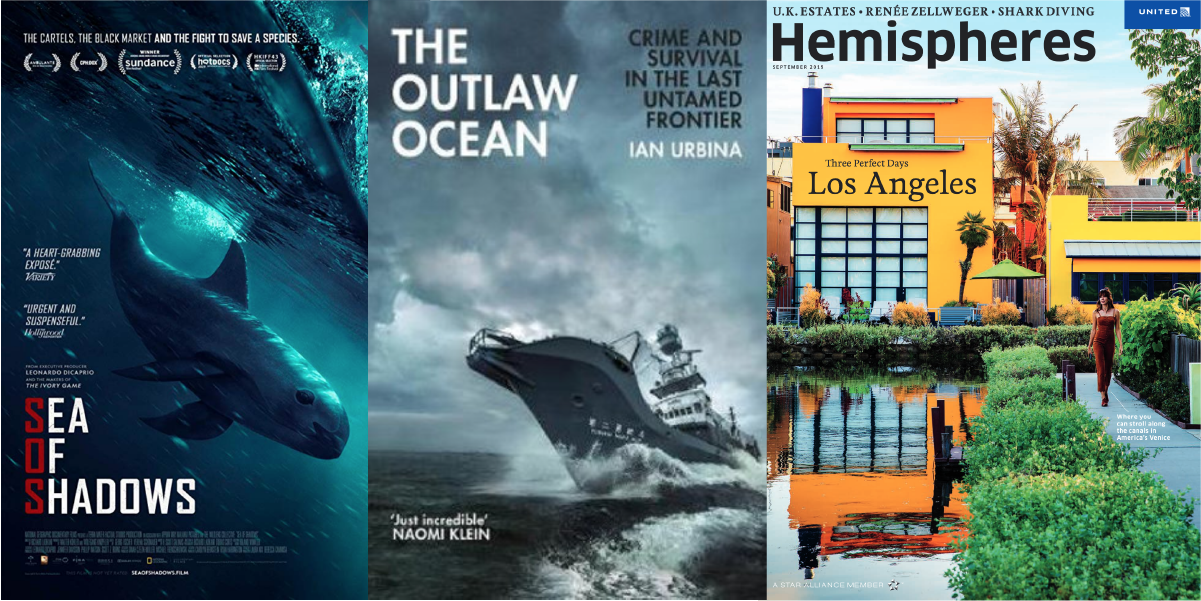
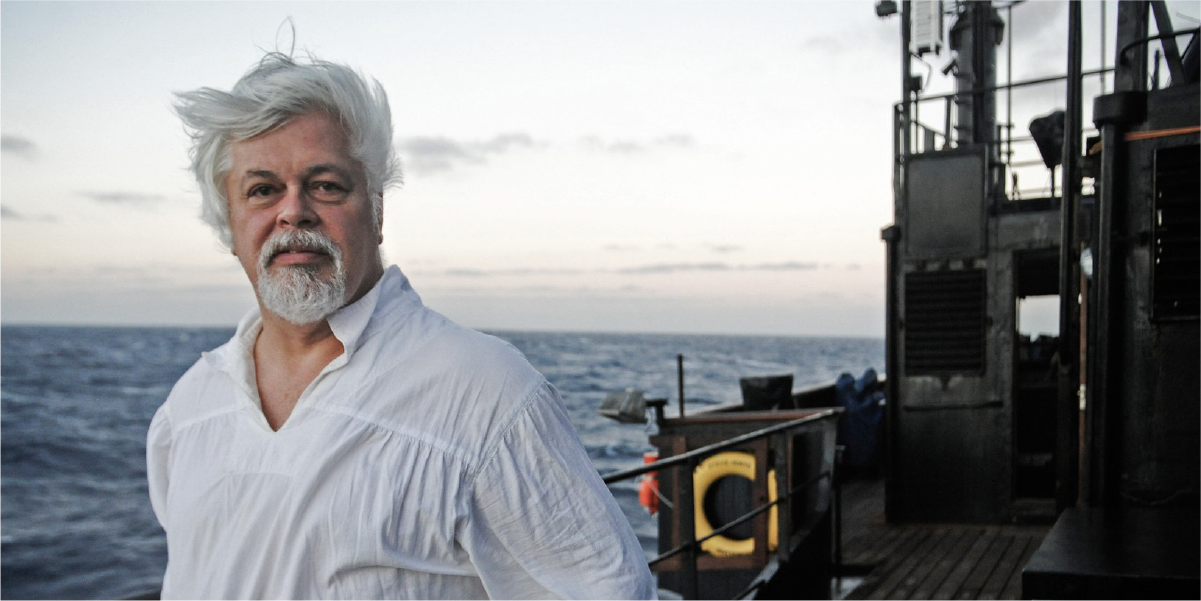
...............
UPDATE 11/15/19

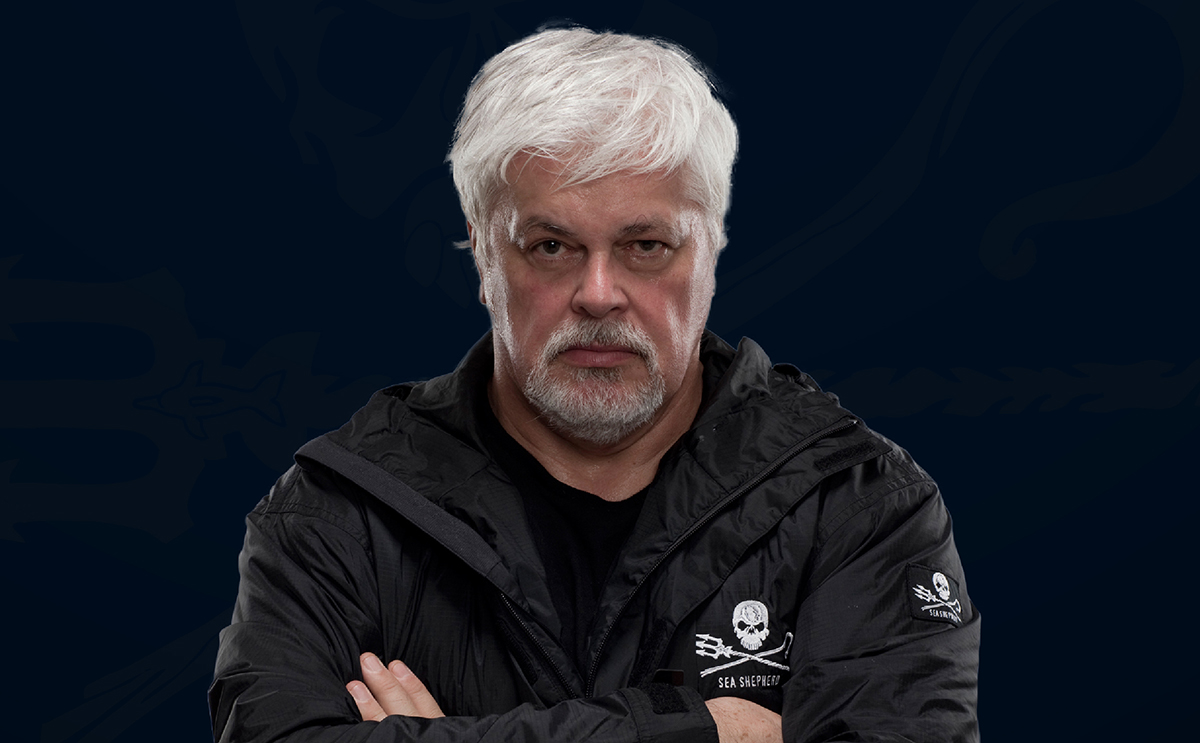
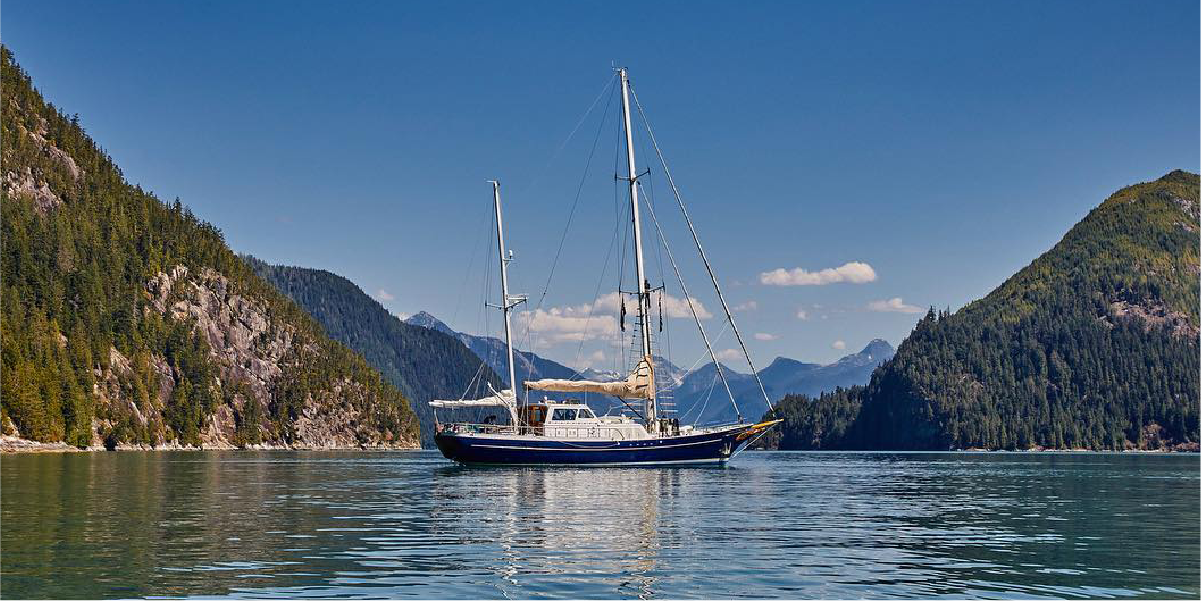
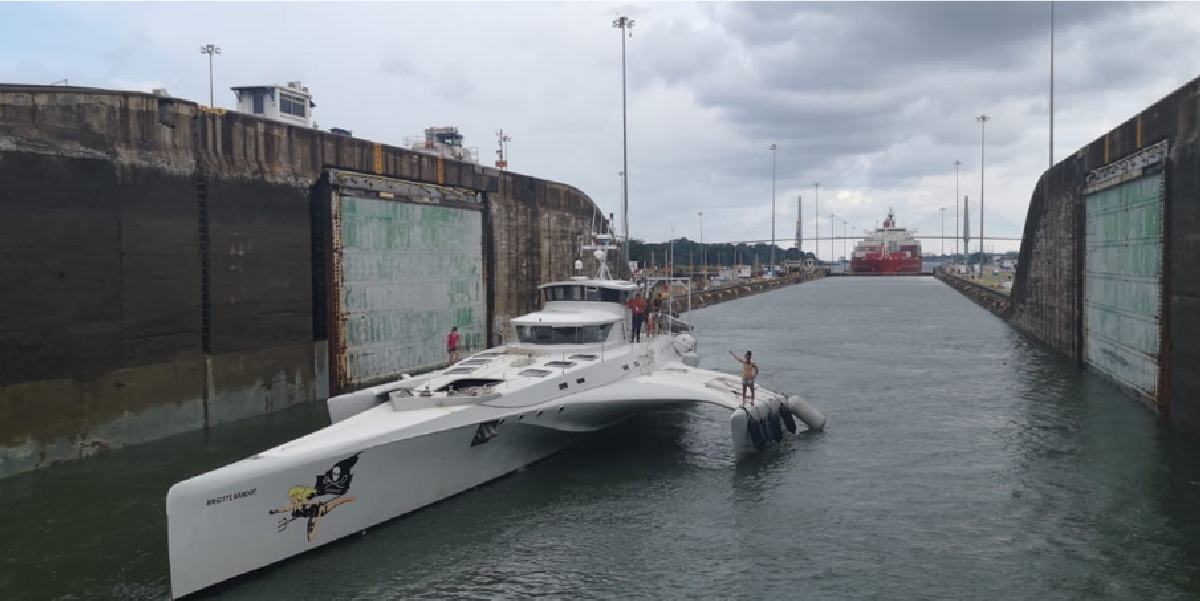
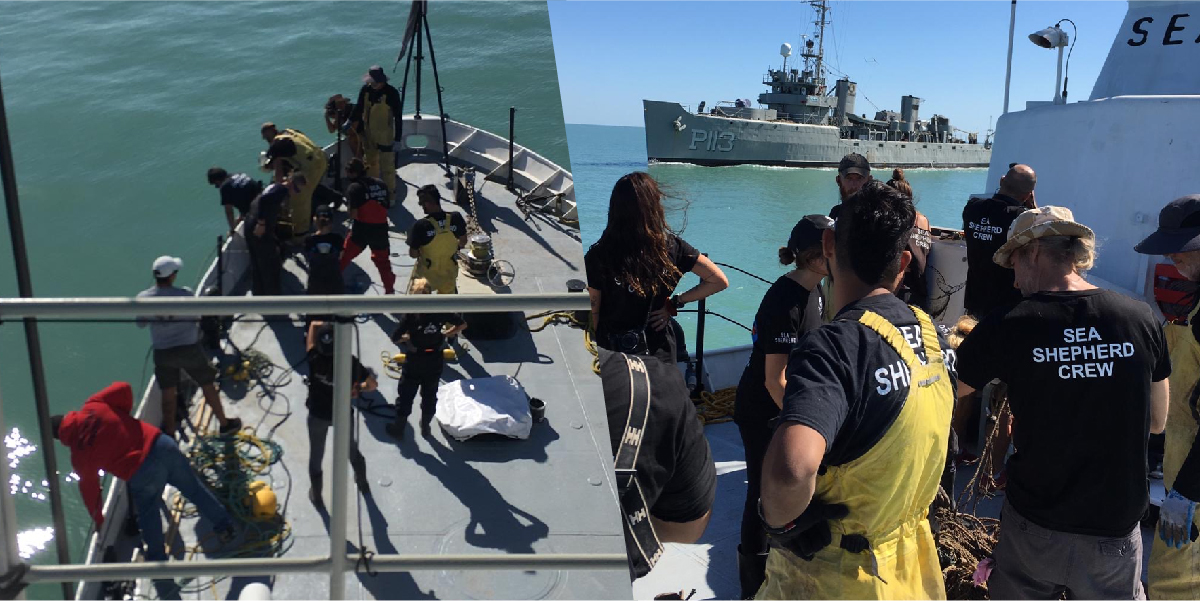
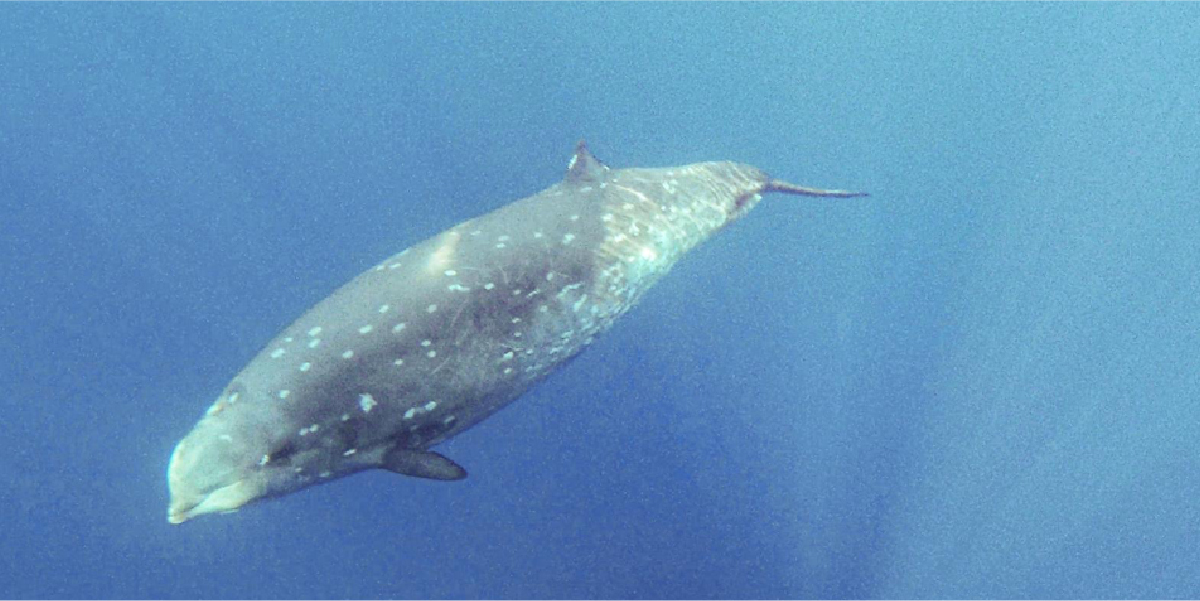
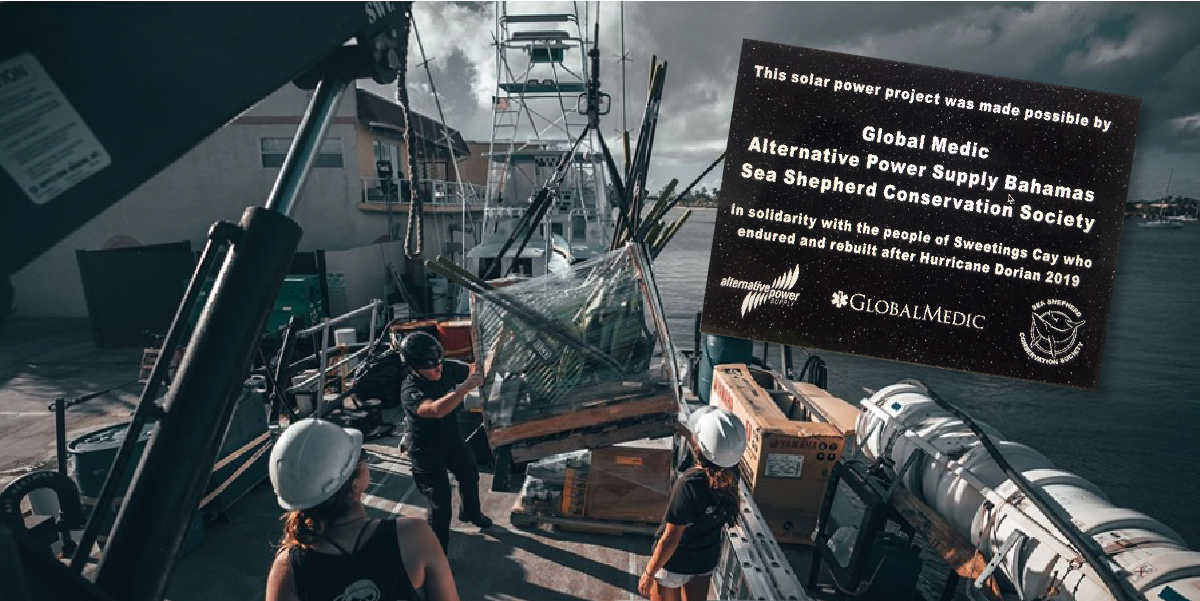
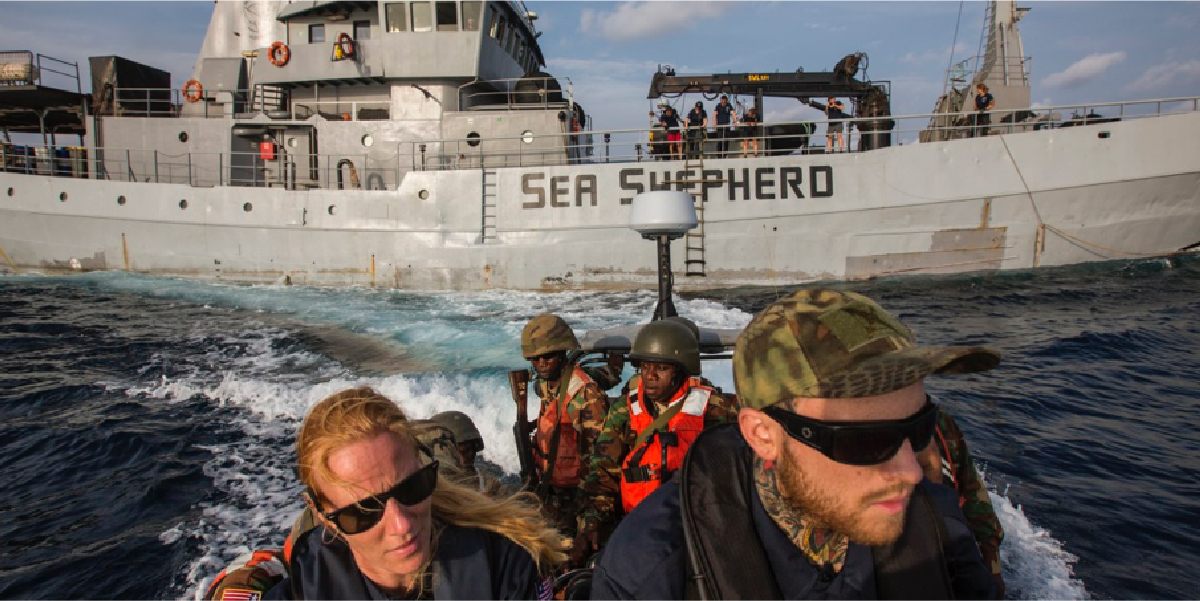
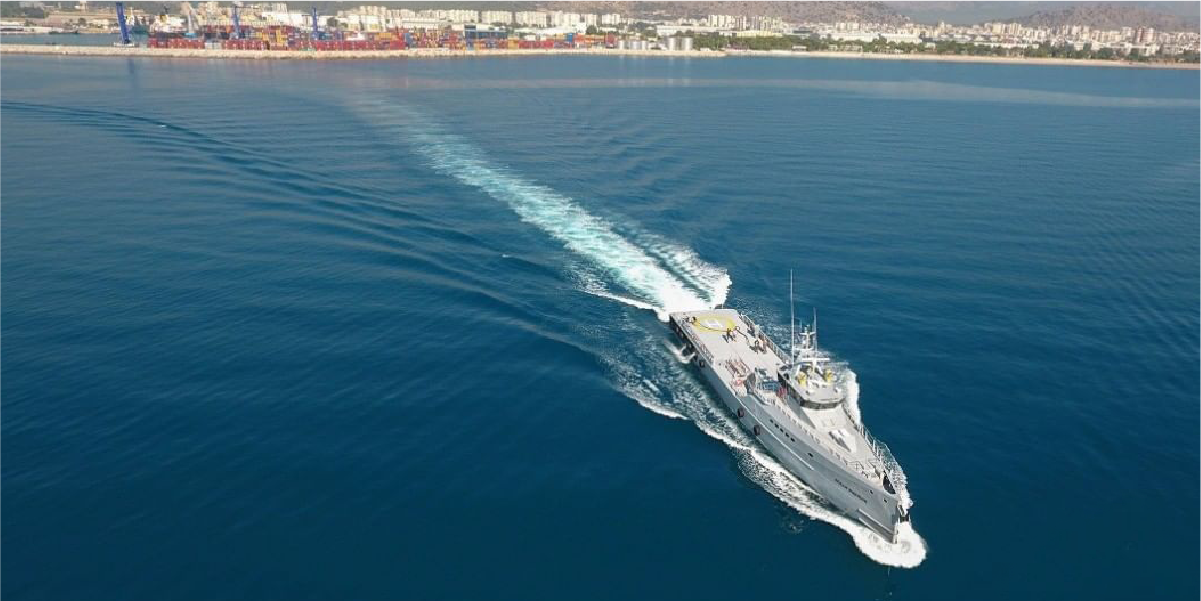
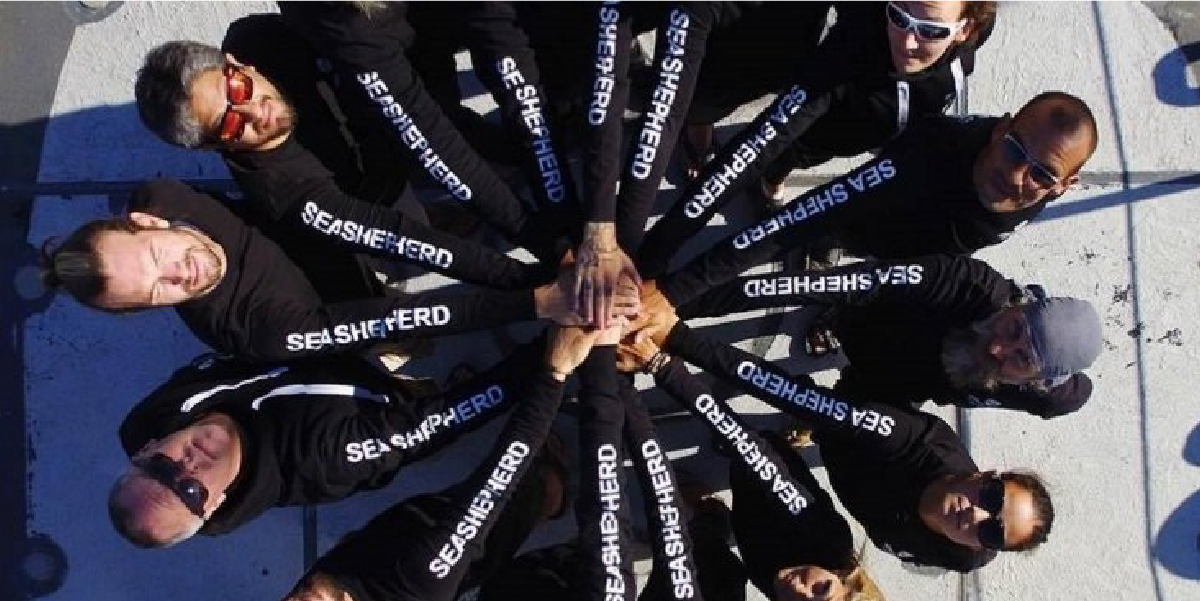
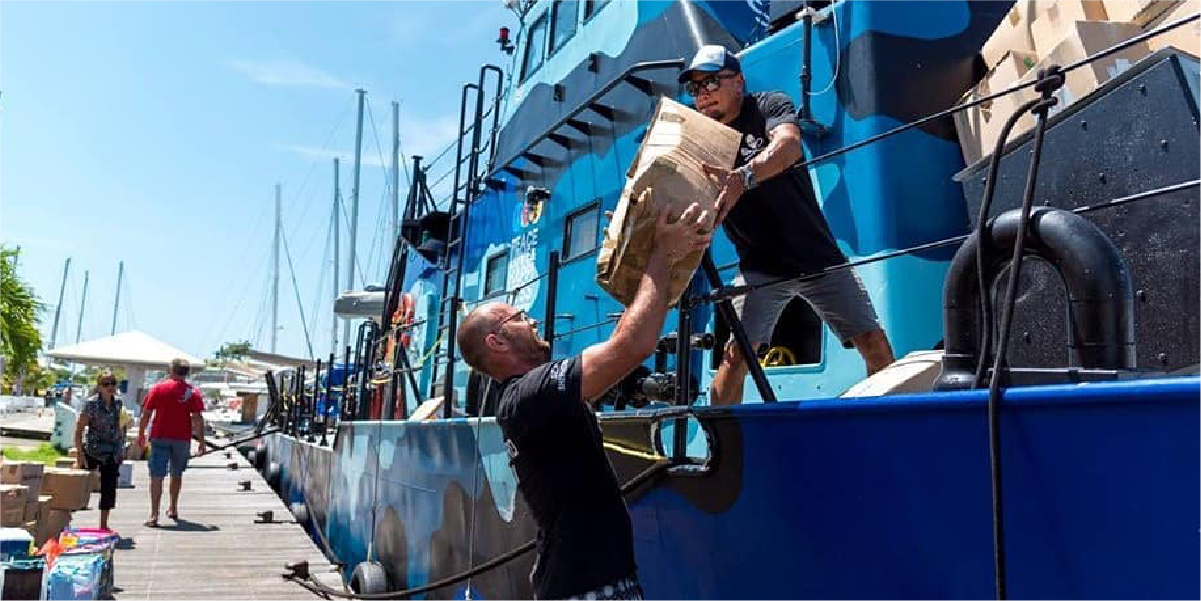
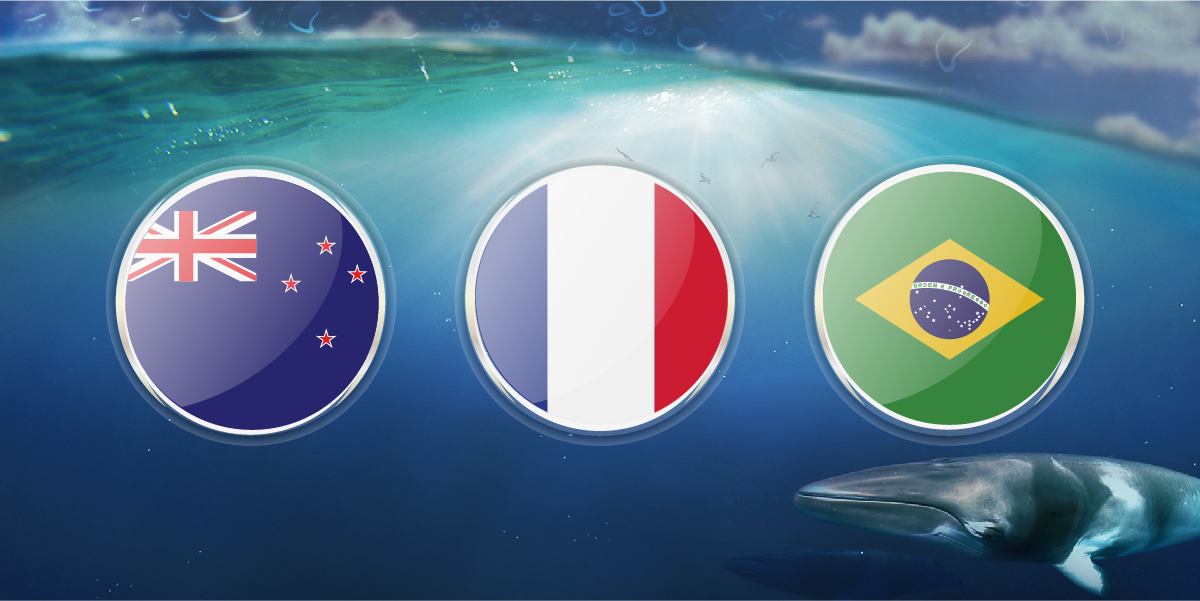
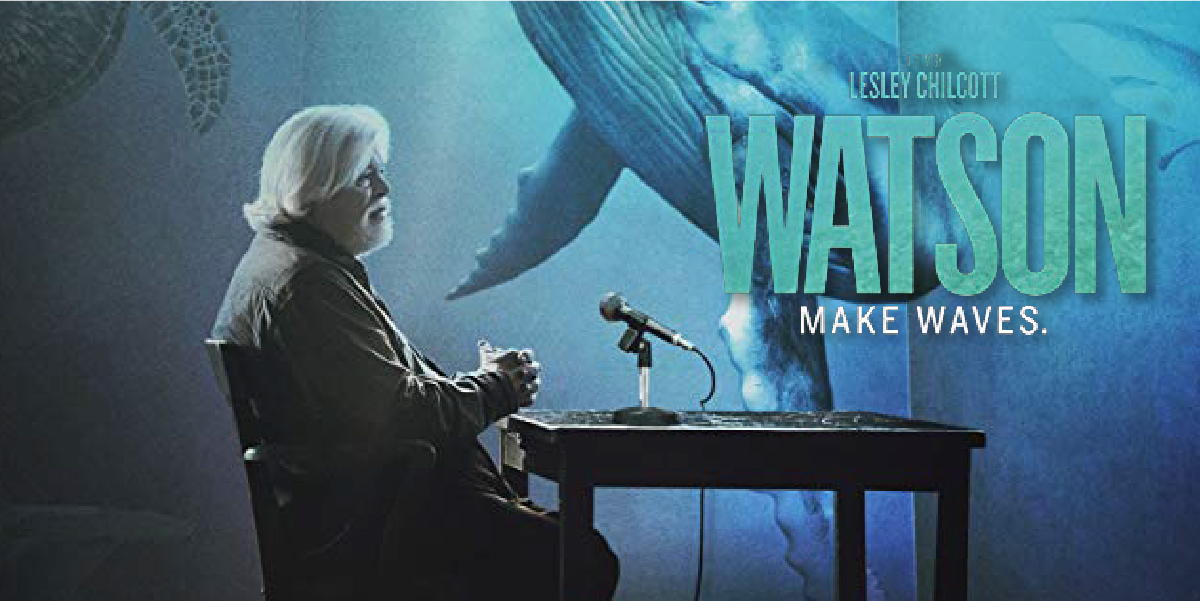
I am very happy to report that Leslie Chilcott's wonderful film WATSON has been submitted to the Academy of Motion Picture Arts and Sciences (Oscars) as one of the 159 submissions for Best Documentary Film.
Leslie was the producer of An Inconvenient Truth, a film that won the Oscar for Best Documentary in 2006. That bodes well for Watson.
Lots of competition however but what she has done with this film is absolutely stunning and so far it has scored 100% on Rotten Tomatoes with extremely positive reviews in the New York Times, the Los Angeles Times and the Hollywood Reporter.

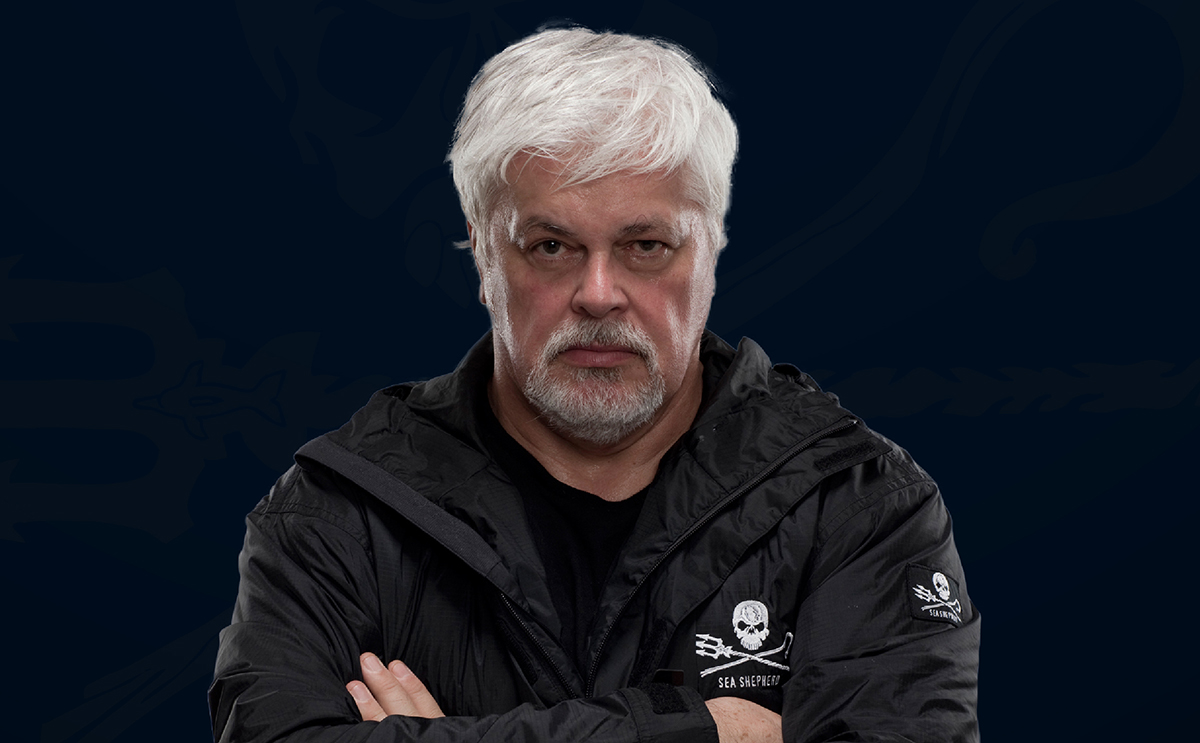
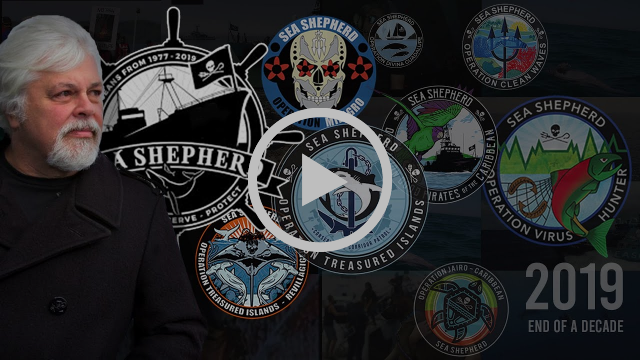 2019: End of One Decade the Beginning of a New Decade
2019: End of One Decade the Beginning of a New Decade
It is with a great sense of relief and accomplishment that this last year, 2019, has seen the end of the viciously cruel slaughter of whales in the Southern Ocean Whale Sanctuary.
Finally after years of opposing the Japanese whale poachers, the Whale Sanctuary is now for the very first time – actually a sanctuary!
No whales will be killed in the waters of Antarctica in 2020 and this will mark the first year since whaling began in Antarctic waters in 1909 by Great Britain.
One hundred and nine years of lethal commercial exploitation of the great whales in Antarctica has finally ended.
Sea Shepherd Advisory Board member Dr. Sidney Holt died at the age of 93 on December 23rd, 2019 and happily he was witness to his lifetime objective of ending this horrific and illegal massacre of the great whales.
The scale of the slaughter was monstrous. The two whaling operations in South Orkneys and the South Shetlands alone killed 118,159 whales in just 19 years between 1911 and 1930. This figure included 61,336 Blue whales, 48,023 Fin whales, 6,072 Humpback whales, and 184 Sperm whales. They did not even bother to kill the smaller Minke whales back then, turning their attention to them only after they nearly obliterated the populations of the larger whales.
These figures were only for the British operations in South Shetland and South Orkney. The whales killed overall in 1927 numbered 13,775 and 40,201 for 1929.
In 1930 some 38 factory ships and 184 harpoon vessels primarily British and Norwegian were slaughtering whales without any thought of the conservation of the species.
The slaughter was so relentless that in 1931, the Geneva Convention for the Regulation of Whaling was signed in the very first effort to address the massacres. Despite the signing of the agreement, the whalers killed 29,410 Blue whales that year.
In 1984, the first Japanese factory ship (Tonan Maru) arrived in Antarctic waters.
In 1937, the International Agreement for the Regulation of Whaling was signed in London. That same year a record 46,039 whales were slaughtered.
The whales received some relief and possibly the Blues and the Humpbacks were saved from extinction because of the war between 1939 and 1946.
In 1946, the realization that the kills were insanely unsustainable resulted in the establishment of the International Whaling Commission.
It was almost too late and it did not stop the slaughter. In fact under the encouragement and assistance of the United States, Japan escalated their operations.
In 1964, all the whaling ships in Antarctic waters could only find 20 Blue whales to kill. The decision was made to pursue other species including the much smaller Minke whales.
During the Sixties, deliberate under-reporting of kill quotas by Japan and the Soviet Union resulted in the realization that whale numbers were far fewer than the IWC had determined.
In 1972, The United Nations Conference on the Human Environment voted for a 10 year moratorium on whaling.
I attended that conference and in 1974 working with Dr. Paul Spong and Robert Hunter we launched the plan to defend and protect whales in the North Pacific.
In 1975, we set forth on the “Greenpeace” to hunt down and confront the Soviet whaling fleet.
It was that voyage that changed my life forever. I was 24 years old, my life saved by a dying Sperm whale and it was in June 1975 that I swore an oath to defend and protect the whales and to do whatever physically possible to eradicate the perversion of whaling.
It was a daunting task, seemingly impossible at the time in the face of commercial whaling operations by the Soviet Union, Japan, South Africa, Spain, Chile, Peru, Australia, Brazil, Taiwan, South Korea and a fleet of pirate whalers like the “Sierra”.
Australia quit whaling in 1977 after dramatic high seas confrontations.
In 1979, I rammed and disabled the “Sierra” and we sank her at dockside in 1980. We then shut down the South African whalers “Susan” and the Theresa” and sank half of the four Spanish whalers in the port of Vigo, Spain. In 1986 we sank half the Icelandic whaling fleet and destroyed their onshore factory shutting down Icelandic whaling operations for 17 years.
Finally after years of intensive efforts by conservationists working within the International Whaling Commission, a moratorium on commercial whaling was passed. That moratorium came into effect in 1987 and is still in effect today.
It did not however stop Japan, Norway, and Iceland, all three of which openly, illegally and contemptuously violated the moratorium. And thus began our direct action opposition to the Japanese whalers in the Southern Ocean and the pirate whaling operations in Norway.
Between 2002 and 2017, Sea Shepherd sent twelve expeditions to obstruct Japanese whaling operations, an effort that saved over 6,500 whales and cost the Japanese whalers over 150 million dollars in losses.
Between 1992 and 2002, Sea Shepherd sank a number of illegal Norwegian whalers dockside in Norway.
It was a war and from 1974 until today, thanks to the efforts of Sea Shepherd, Greenpeace, and the incredible scientists fighting the whalers inside the IWC, whaling has been 95% eradicated.
This coming year not one whale will be killed in pelagic international waters. This has been a momentous achievement and something that I believe justifies all our so called radical actions over the last four decades.
We went to war to save the whales and we won. The Antarctic Whale Sanctuary is now empty of whalers and all international waters are now safe from the curse of whaling.
Now we need to complete the job by mopping up the illegal whaling operations ongoing inside the territorial waters of Norway, Japan, and Iceland.
It has been and continues to be my lifetime ambition to eradicate the perversion of whaling by anyone, anywhere, for any reason. In my mind it is murder and a crime against the Cetacean nations, against humanity and against nature.
On this day, as we begin a New Year, I would like to gratefully acknowledge and to thank all those organizations, scientists and activists that have made this all possible.
I especially want to acknowledge and to thank the thousands of volunteers that have crewed on Sea Shepherd ships over these many years. It is their courage, their hard work, their passion and their dedication that achieved so much with so little resources.
Today our crew are fighting to prevent the extinction of the Vaquita porpoise and to stop the slaughter of the fishes by illegal, unregulated and unreported fishing, We are working to protect the seas from plastic, from pollution, from the toxins, parasites and viruses from domestic fish farms and we are working to increase our efforts to effectively patrol marine sanctuaries and refuges in cooperation with other organizations and with governments.
We are also working to shut down the barbaric slaughter of pilot whales and dolphins in the Danish Faroe Islands and in the Cove at Taiji, Japan.
In these efforts we are guided by this one very blatant truth – If the Ocean dies, we all die!
The Ocean is the life support system for Spaceship Earth.
In saving the whales, the turtles, the sea birds, the plankton and the fishes, we save ourselves.
Much has been achieved and there is still much more to do.
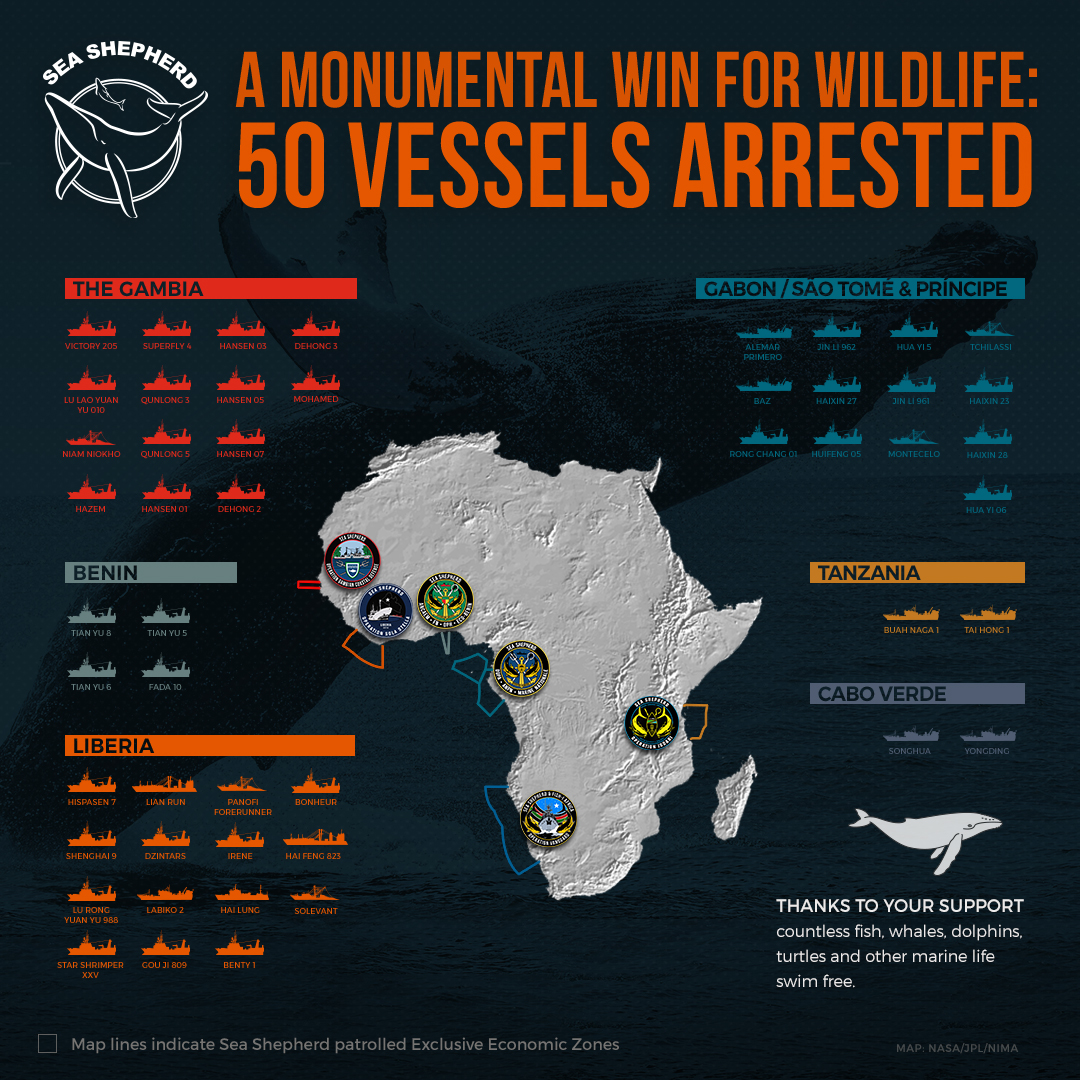
Our anti-poaching patrols have busted 50 illegal fishing vessels to date. Our official partnerships with seven African nations has been hugely successful and the outlook for 2020 looks like we will be working with additional African nations.
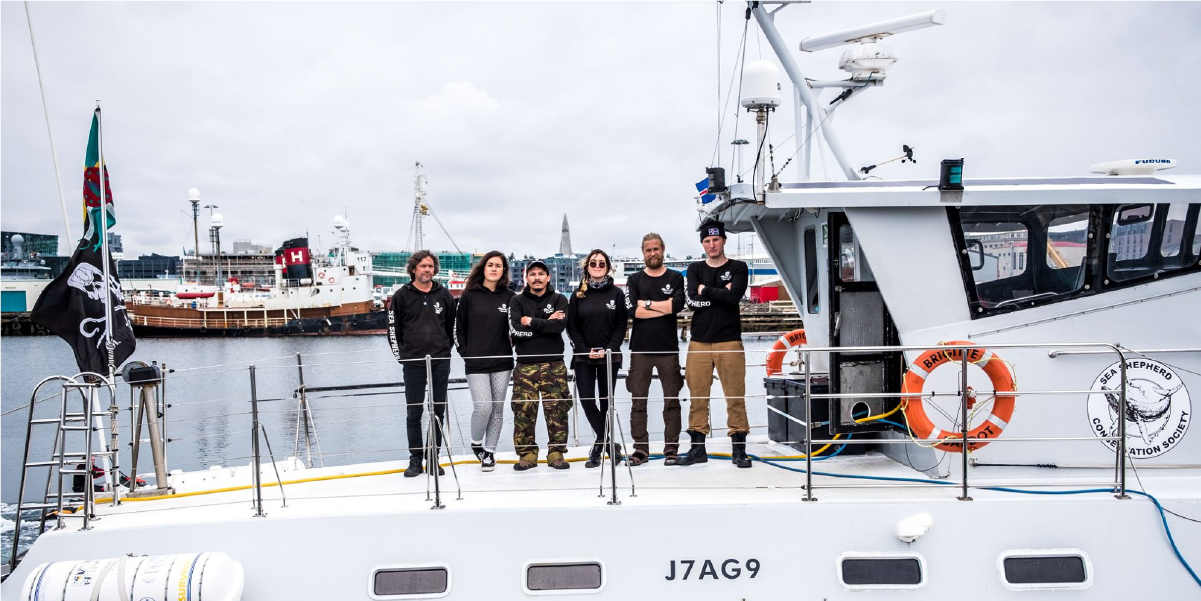
We sent our ship the Brigitte Bardot to Iceland this last summer and not a single whale was slain there in 2019.
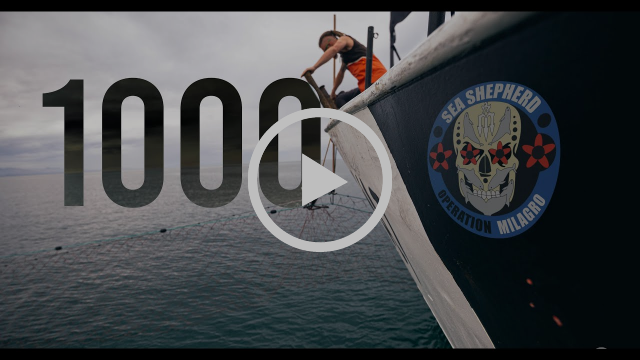
Operation Milagro is our most intensive and most dangerous campaign but in 2019 we marked over a thousand illegal nets located and confiscated representing some 150,000 meters. Most importantly Sea Shepherd efforts have prevented the extinction of the Vaquita, the most endangered marine mammal on the planet.
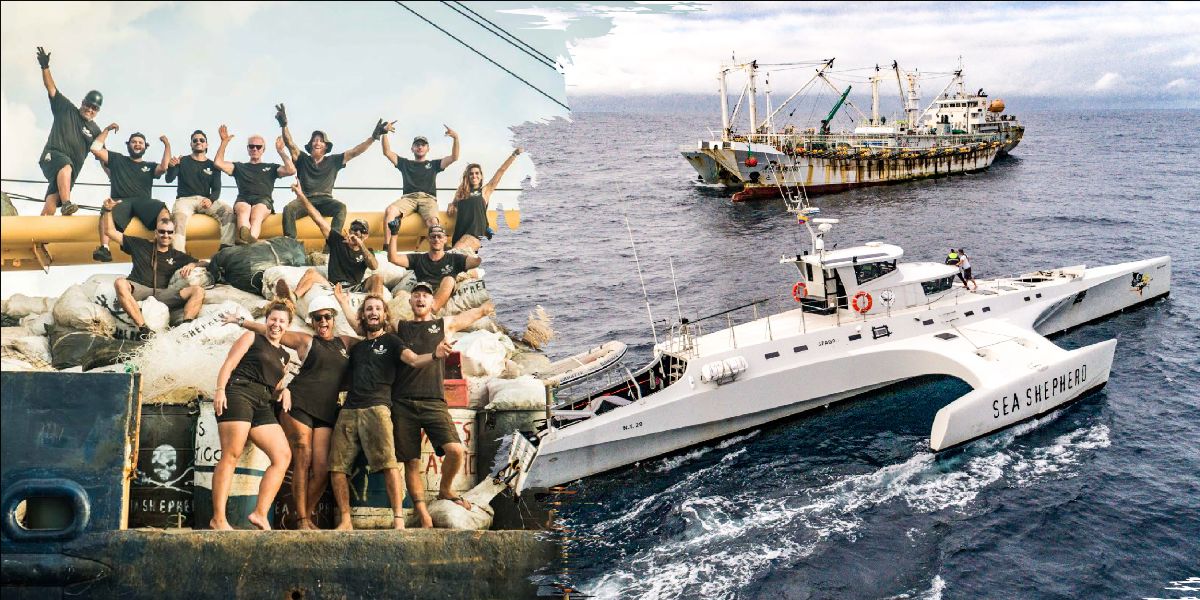
In 2019, our ship the White Holly removed 40 tons of marine debris, primarily confiscated fishing gear from Costa Rica’s Cocos Island in a joint effort with Costa Rican rangers. Our ship the Brigitte Bardot also patrolled the waters of the Galapagos Corridor to document and report illegal activities by Chinese fishing vessels.
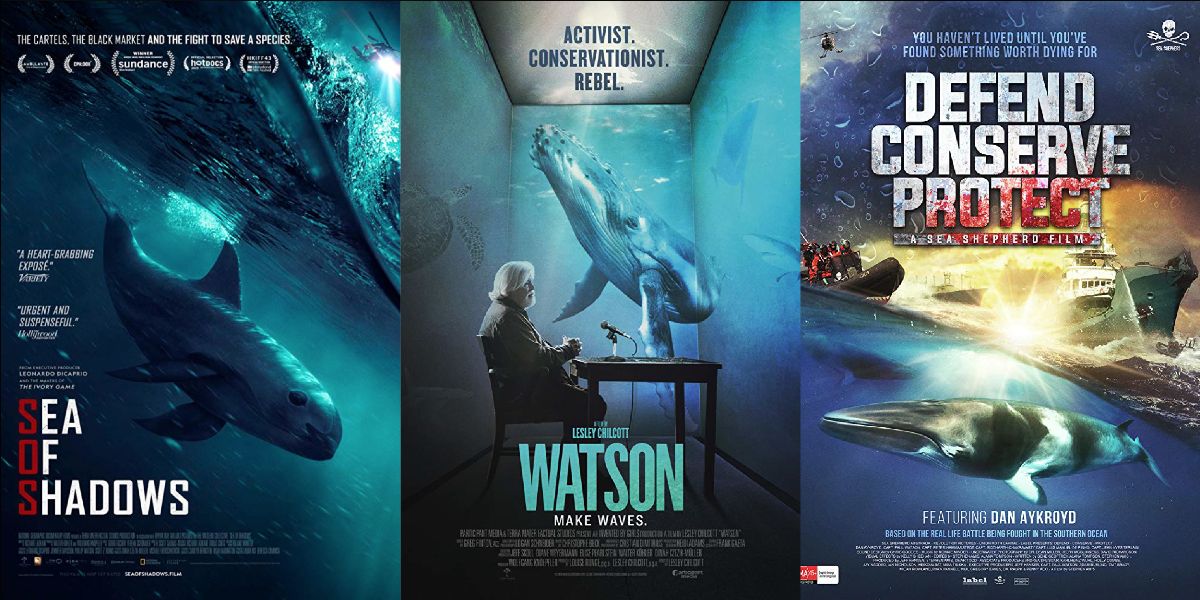
2019 saw the release of Sea of Shadows by National Geographic in November and Lesley Chilcott’s awesome documentary WATSON that aired on Animal Planet on December 22nd. Animal Planet also ran reruns of Whale Wars during the month of December. In Australia the film Defend, Conserve, Protect about Sea Shepherd’s Antarctic campaigns to defend the whales was released.
